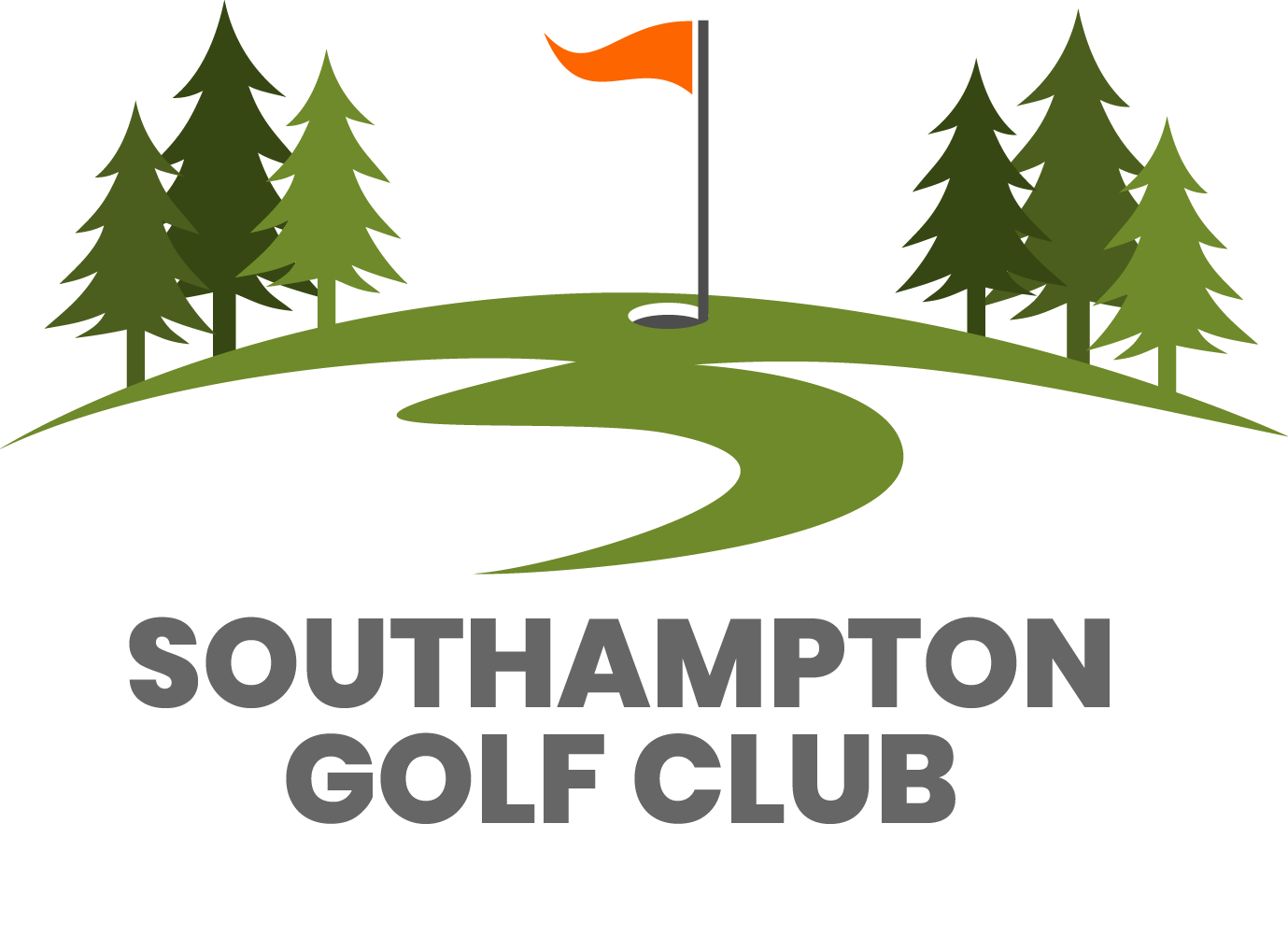

Pros And Cons Of Forged Irons – Who Should Be Using Them?
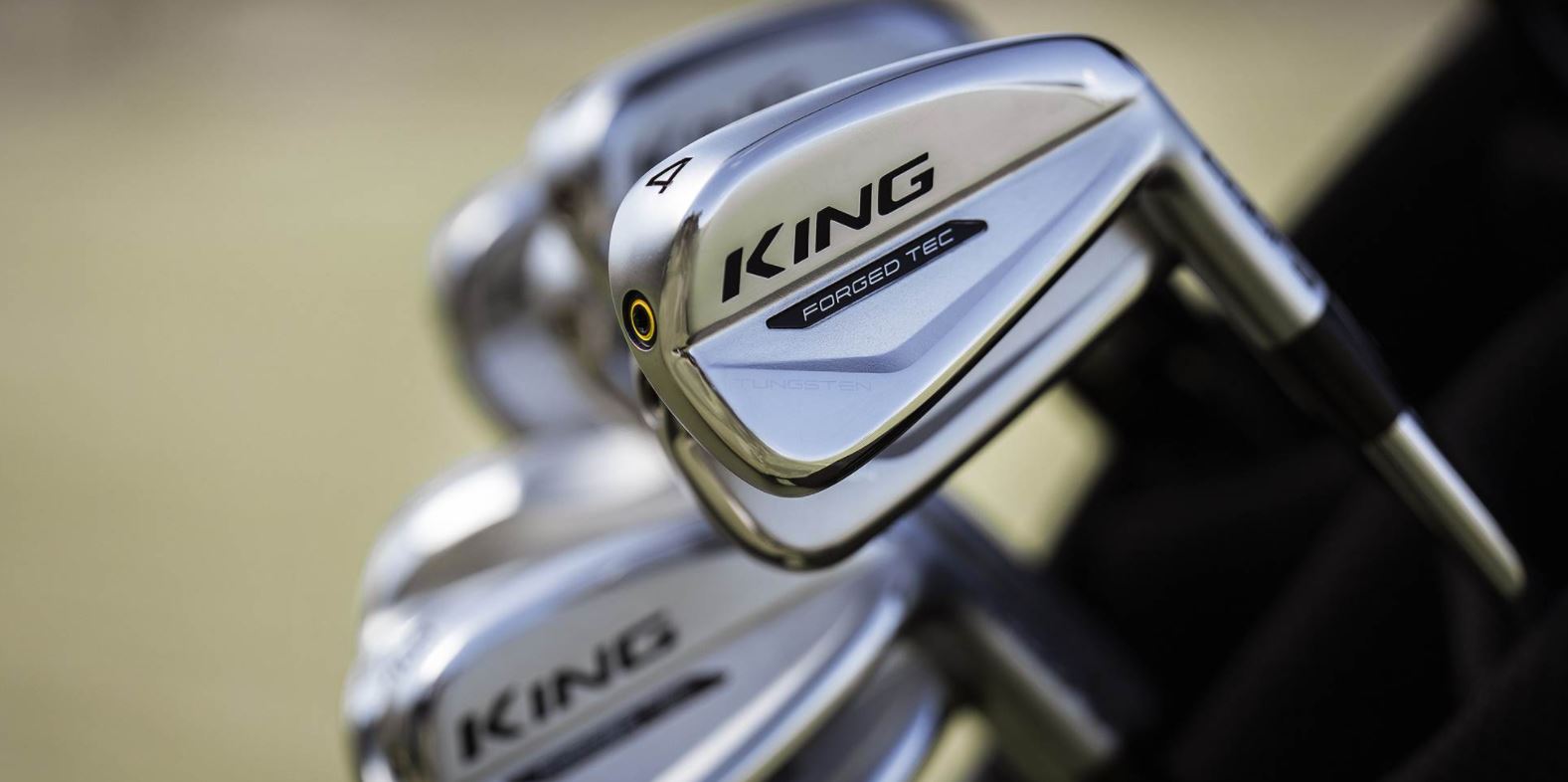
When you are hunting for a new set of irons, you will likely hear two terms thrown around repeatedly, forged irons and cavity-backs.
These are the two predominant types of irons available on the market. Cavity-backs are commonly linked to game-improvement irons, while blades are usually forged.
Higher handicap golfers are encouraged to use cavity-backs for their forgiveness. But, lower handicappers and Pros enjoy the shot shaping ability, slick look, and incredible feel that blades deliver when you middle it.
This article is designed to identify the pros and cons of forged irons. It is our intention to better uncover and understand who should be using them?
Overview Of Forged Golf Irons
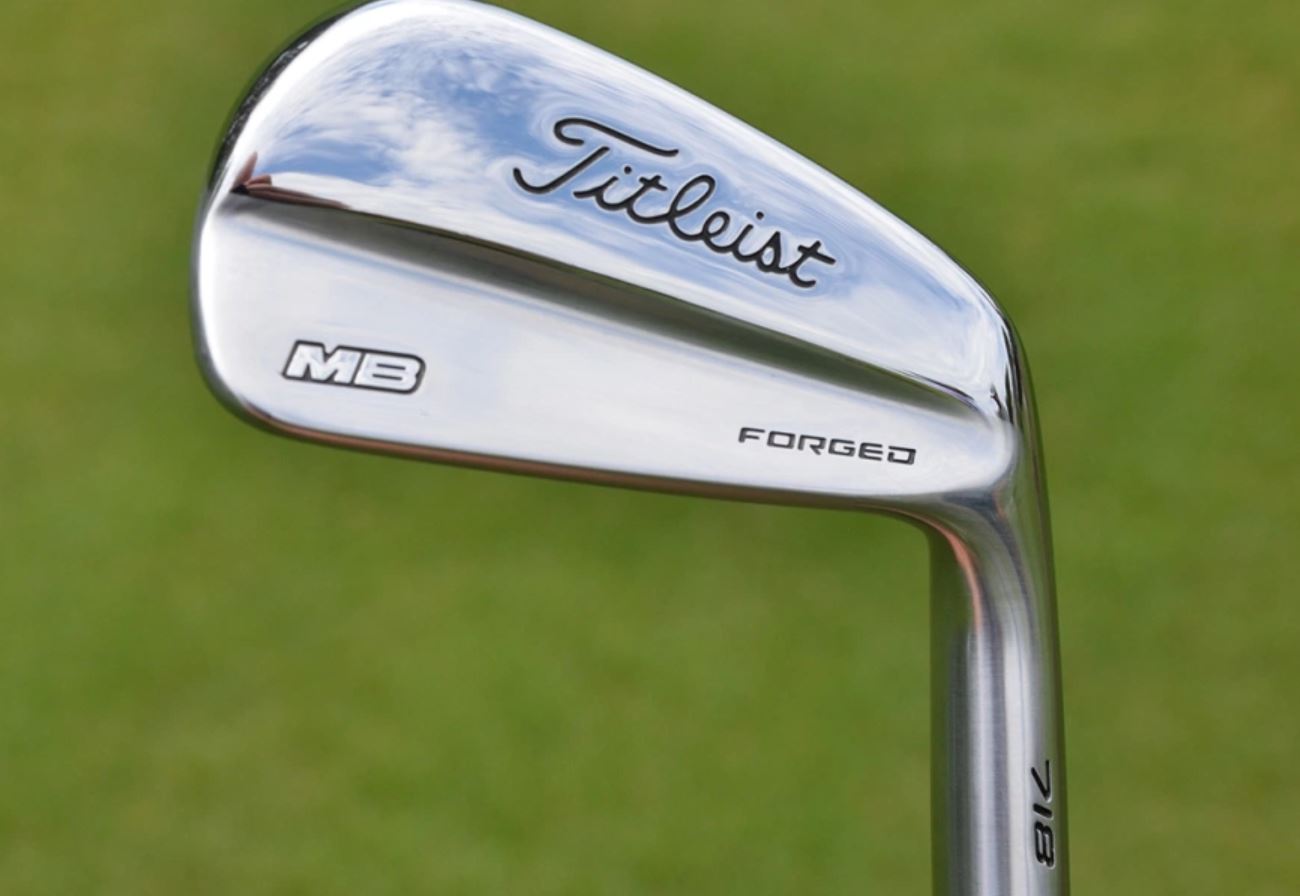
For the first ten years of my golfing journey, I used forged blade irons. While these irons provided the crispest feeling and acoustics on strikes out of the sweet spot. They were relentless on off-center strikes costing me significant distance and accuracy.
I only ever suggest that you play with forged irons if you are confident that you can consistently strike the ball cleanly and get it airborne. If you are unable to achieve this, then I suggest sticking to game improvement irons.
What Exactly Are Forged, Irons?
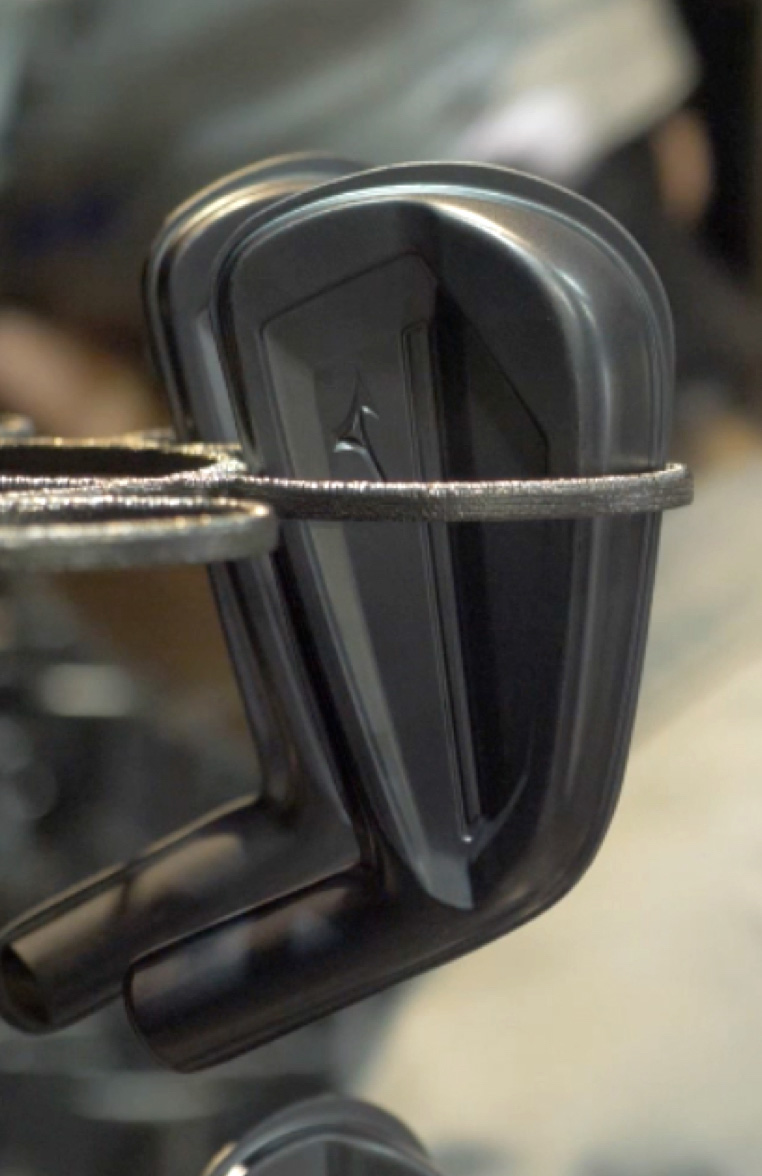
As the name suggests, these irons are forged from a single piece of metal to create a compact blade head. Forged irons are not a type of club but rather the manufacturing process which irons undergo.
Golfweek’s Don Patton notes that all irons were crafted this way until the 1960s until cavity-backs were created from casts. Blades or players irons are the most common form of forged iron that is available on the market.
How Are They Made?
Forged irons are made from a single piece of metal that remains solid throughout the process. The metal is pounded into shape until the desired club head shape has been achieved.
What Type Of Golfers Use Forged Irons?
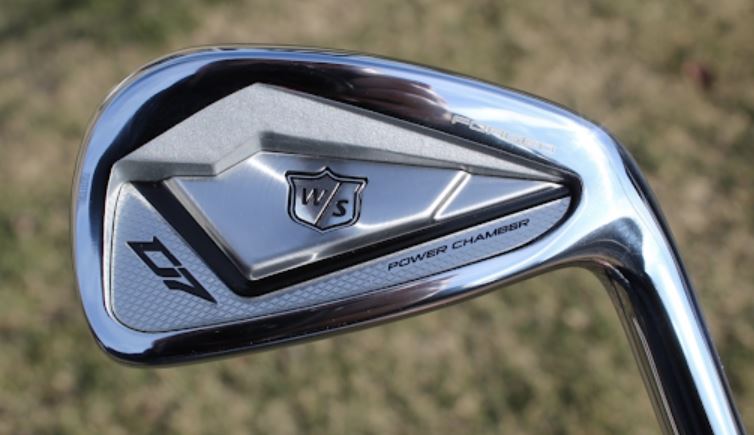
Earlier I mentioned that blades or players’ irons are the most common club crafted using a forging process. It is for that reason that lower handicappers and professional golfers use forged irons.
The compact head size and unforgiving nature of forged irons are not conducive to optimum play for mid and high handicap players.
Cast Irons Vs Forged Irons History
It was not until the 1960s that the casting process was introduced by Ping . Before that, irons were crafted by forging a single piece of metal at all times.
Since the 1960s, cast irons have become a popular production practice, thanks to the ease of manufacturing them at scale.
Cast Irons Vs Forged Irons Key Differences
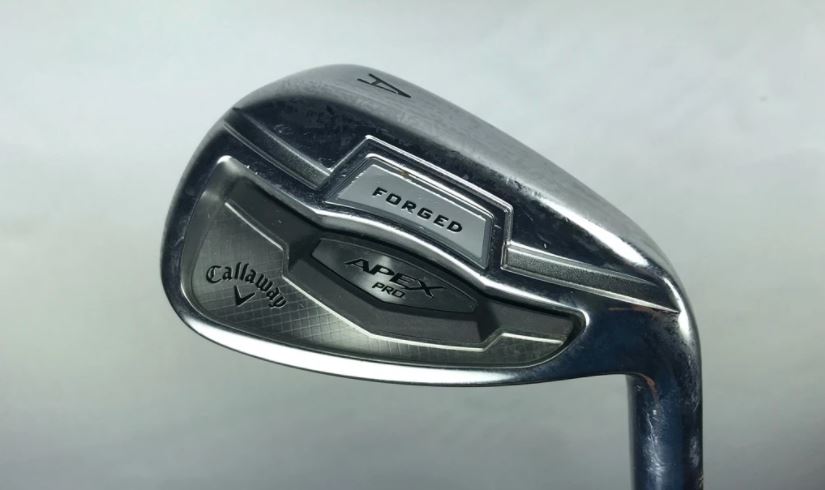
- Crafted using a cast mold
- The liquid is inserted into the cast to produce the head shape
- Less expensive production process
Forged Irons
- Clubhead forged from a single piece of metal
- Manual Process
- Expensive production process
Forged Vs Cast – Short Irons Performance
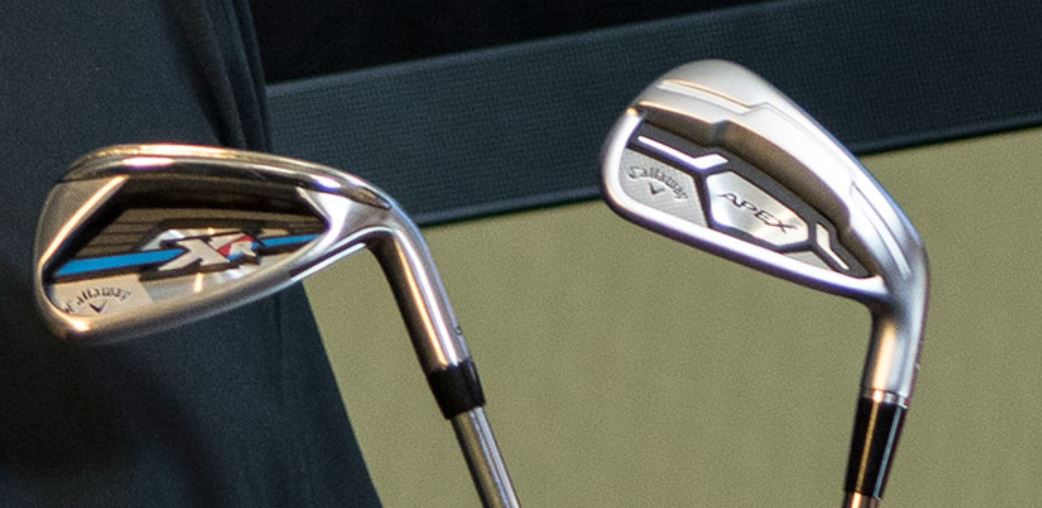
There are few substitutes to a crisp forged iron wedge shot that hits the green skips twice and spins slightly to stop dead.
However, if you don’t hit it out the middle, you will feel vibrations running down the shaft and into your grip. And the ball will not finish near the intended target.
Conversely, irons produced using the cast production method offer more forgiveness and minimize unwanted vibrations on off-center strikes.
Forged Vs Cast – Long Irons Performance
The lower CG in the long cast irons makes it a wiser choice for all golfers.
When the CG is placed lower in the irons, it promotes a more powerful launch that results in consistent carry and distance.
Pros Of Forged Irons
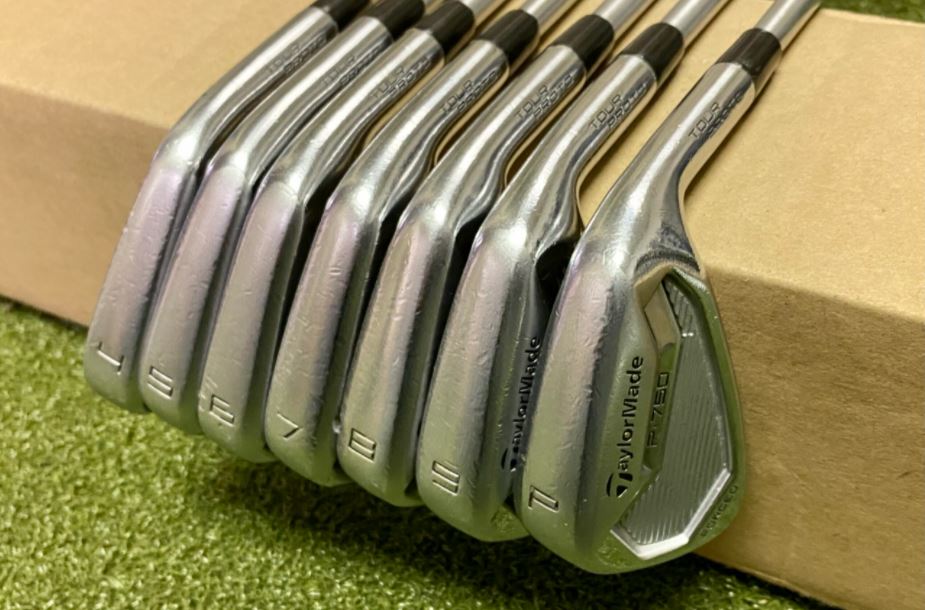
Softer Feeling
Those of you who have struck a blade out of the sweet spot will know that there are few better feelings. It is one of the reasons why lower handicappers and pros prefer forged irons over cast-produced irons.
However, if you do not hit your shots out of the reduced sweet spot, you will endure harsh vibrations. Game improvement irons that are manufactured using a casting technique contain technology and padding to minimize the vibrations of off-center strikes.
More Control Around The Greens
The design of forged irons gives it superior turf interaction abilities, which is great for making solid contact with your ball and generating spin and control around the greens.
However, as is the case with all forged iron shots, if you do not hit it in the sweet spot, you risk hitting it thin or hooking and slicing your shot.
Forged Irons Have Improved In Line With Cavity Backs
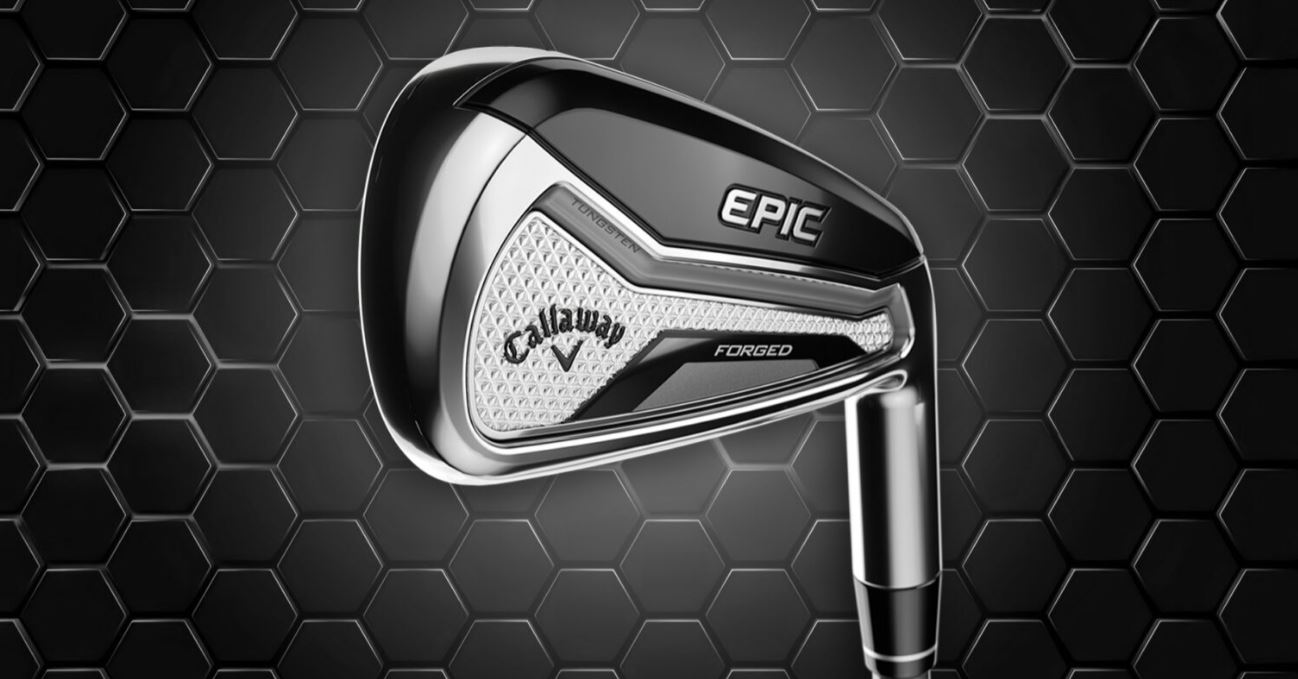
Technology has enabled manufacturers to get creative with their forged iron designs.
As a result, blades or players’ irons are not the only forged iron option on the market.
These days there are players’ distance and game improvement irons that are crafted using the forged process.
Manufacturers have been able to add forgiveness to their forged irons and promote increased clubhead speeds and straighter shots.
Cons Of Forged Irons
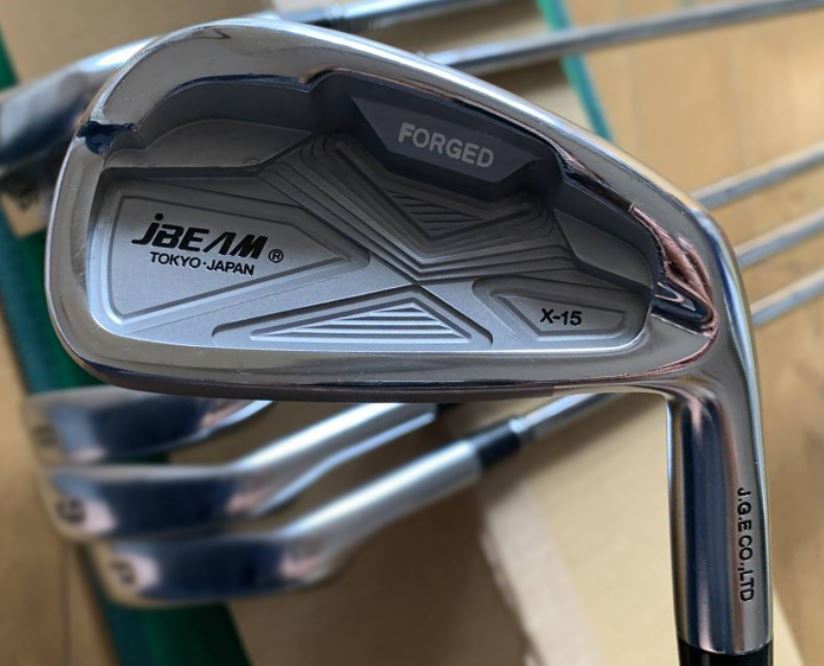
Smaller Sweet Spot
Considering that most forged irons are blades, players irons, or players distance irons, they tend to have a small sweet spot, concentrated directly behind the center of the face.
Off-center strikes can lead to violent hooks, slices, and a significant loss of distance.
It is for these reasons that forged irons are best suited to lower handicappers and professional golfers.
Better For Lower Handicap Players
The compact head design of most forged irons, coupled with its small sweet spot and unforgiving nature, means these clubs are for the superior golfers among us.
The average golfer will struggle to get the ball airborne and straight with forged irons in hand.
More Expensive
The process of crafting forged irons requires hammering a single piece of metal until you have achieved the desired shape.
This is a manual process, requiring a longer dedicated process.
Less Durable
The casting process of cavity back irons is more controlled and enables manufacturers to produce the clubs at a consistent level.
When the liquid is inserted into the cast sets, it becomes tougher than forged irons.
Most Forgiving Forged Irons – Mini Review
Taylormade p790 iron set.
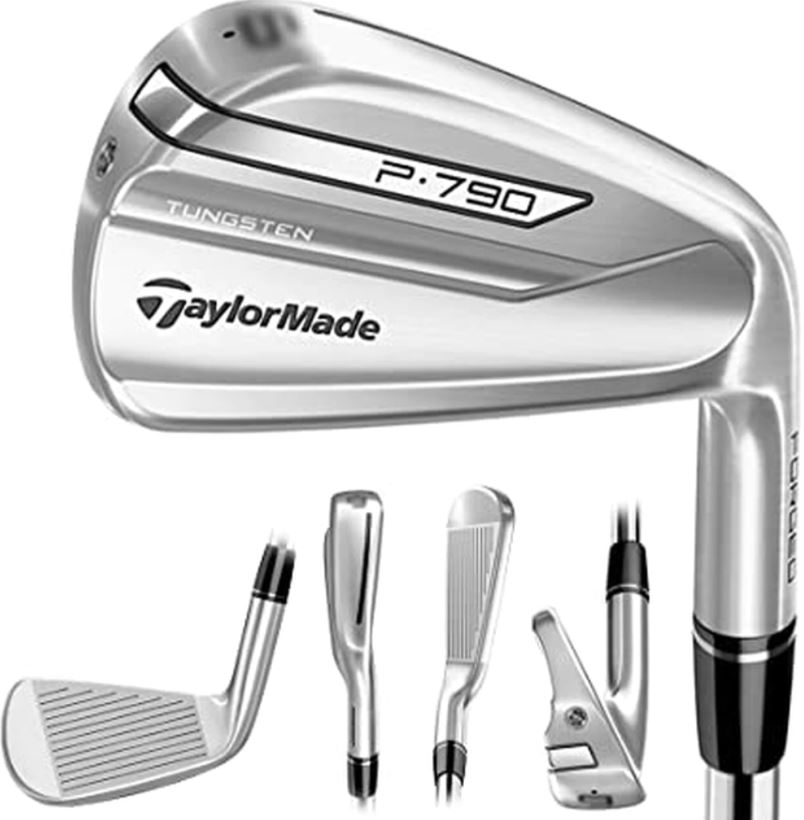
Key Features
- Light urethane foam is inserted to provide faster clubhead speed and more forgiveness
- A thinner forged face helps to maximize the COR of the irons
- Low profile tungsten weighting lowers the CG resulting in a higher, powerful launch
- Delivers accelerated clubhead speed
- Promotes straighter, more accurate shots
- Helps to generate a more powerful launch
- Gives you consistent carry and distance
- Provides a high level of forgiveness
- The mid to low launch may not suit players who struggle to get the ball airborne
- Moderately expensive
Overall Score: 95/100
Check out more reviews here:.
Mizuno JPX921 Hot Metal Iron Set
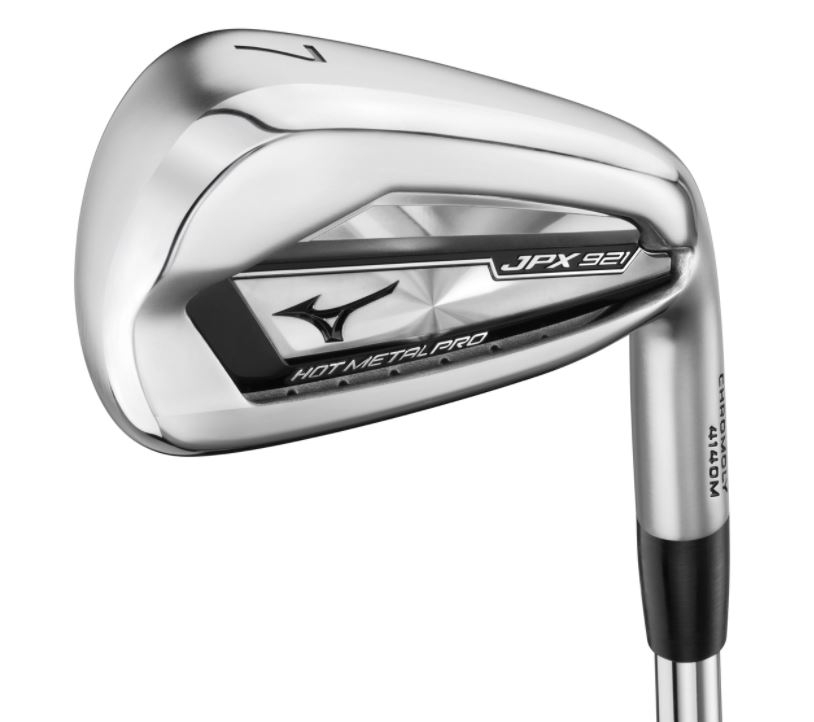
- Thick sole for an enhanced face flex
- Harmonic impact improves the acoustic feedback of the irons
- Pearl brush finish reducing glare
- Extreme perimeter weighting ensures clubhead stability on off-center strikes
- Delivers faster clubhead speed
- Generates accelerated ball speed
- The cup face design promotes additional face flex
- Anti-glare finish
- The thicker sole may be off-putting at address, for some golfers
- Additional offset is not suitable for players looking for extra side spin to shape shots
Overall Score: 93/100
Pxg 0311 sgi gen 2 irons.
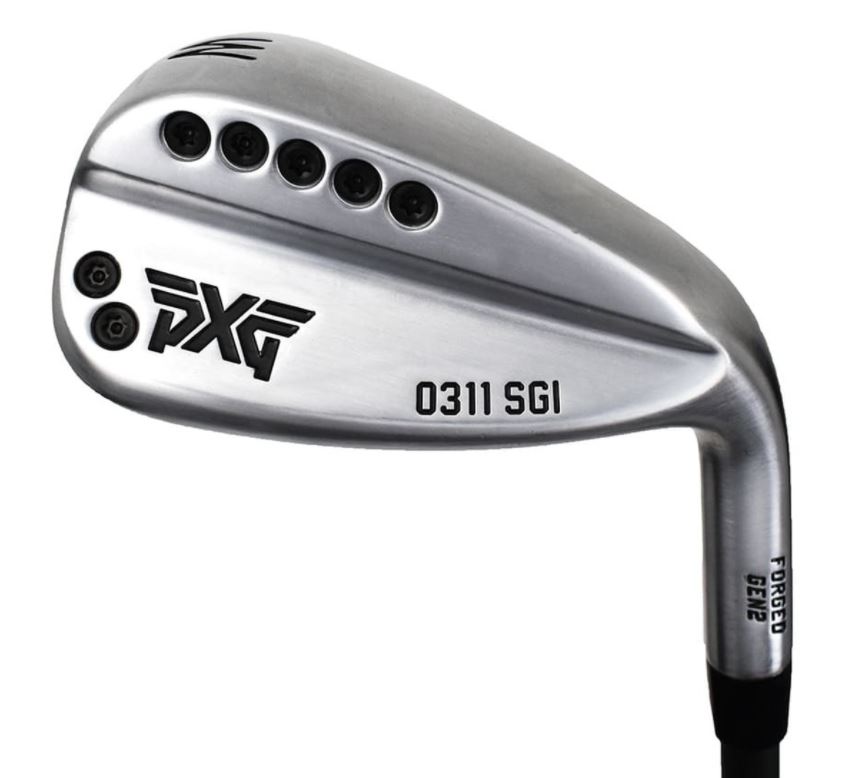
- Forged super game improvement irons
- Enhanced offset
- Wide sole width
- COR2 technology applied to dampen vibrations
- A thin face amplifies MOI
- Promotes straighter ball flight to keep you in play
- Delivers a higher launch to provide further carry and total distance
- Suited to higher handicappers and golfers with slower swing speeds
- A 15% larger functional area on the face delivers a trampoline effect, resulting in an increased coefficient of restitution (COR) at impact.
- The noticeable offset is not ideal for players looking to shape their shots
- The wider sole and chunky appearance may be off-putting to lower handicappers and traditionalists
- A higher launch may cause players with faster swings to balloon their shots
Overall Score: 91/100
Best forged irons for mid handicappers , mizuno jpx921 forged irons.
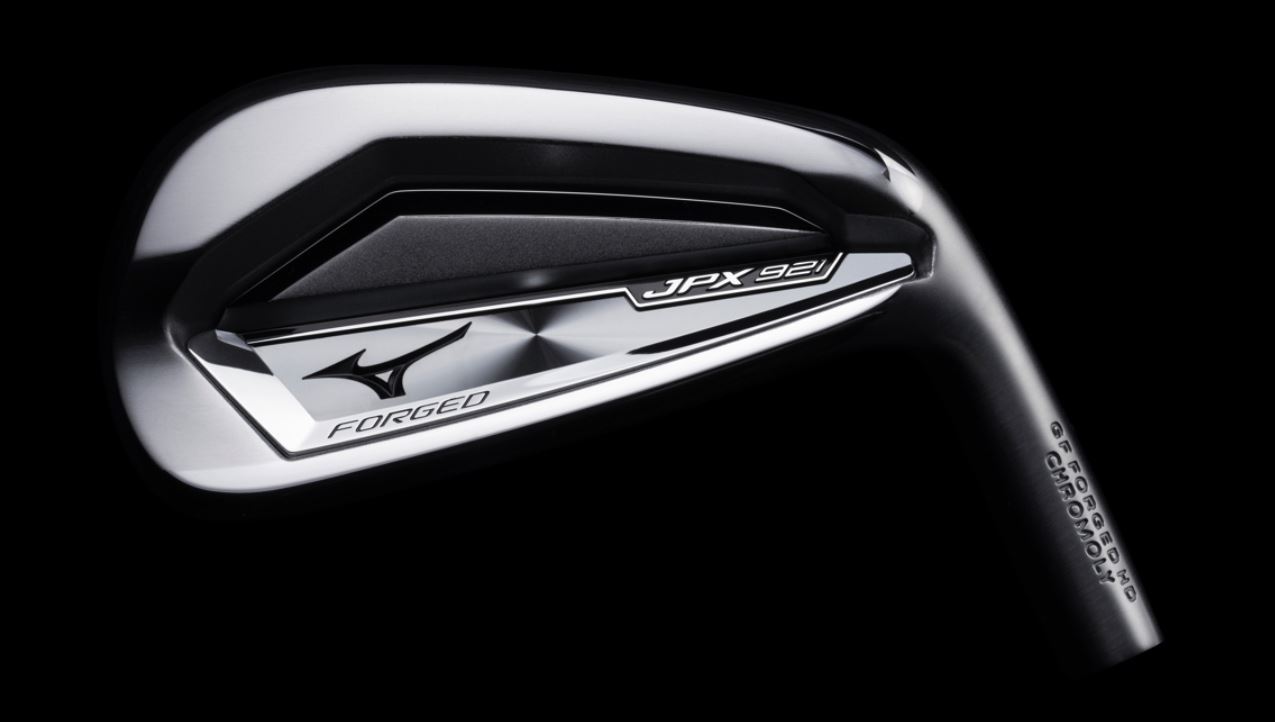
- Grain flow forged irons
- Clubface thickness is 0.5mm thinner than previous irons
- Short blade length
- A wide back milled slot enhances the clubhead’s stability on off-center strikes
- Added perimeter weighting with toe-bias
- Covered with a pearl brush finish
- Soft feel at the impact on strikes out of the middle
- Promotes accelerated ball speed in your 4 to 7 iron shots
- Reduced offset allows for better shot workability
- Mitigates against off-center strikes to deliver excellent forgiveness
- A smaller club head may be challenging for beginners and high handicappers to play
Cobra King Forged Tec
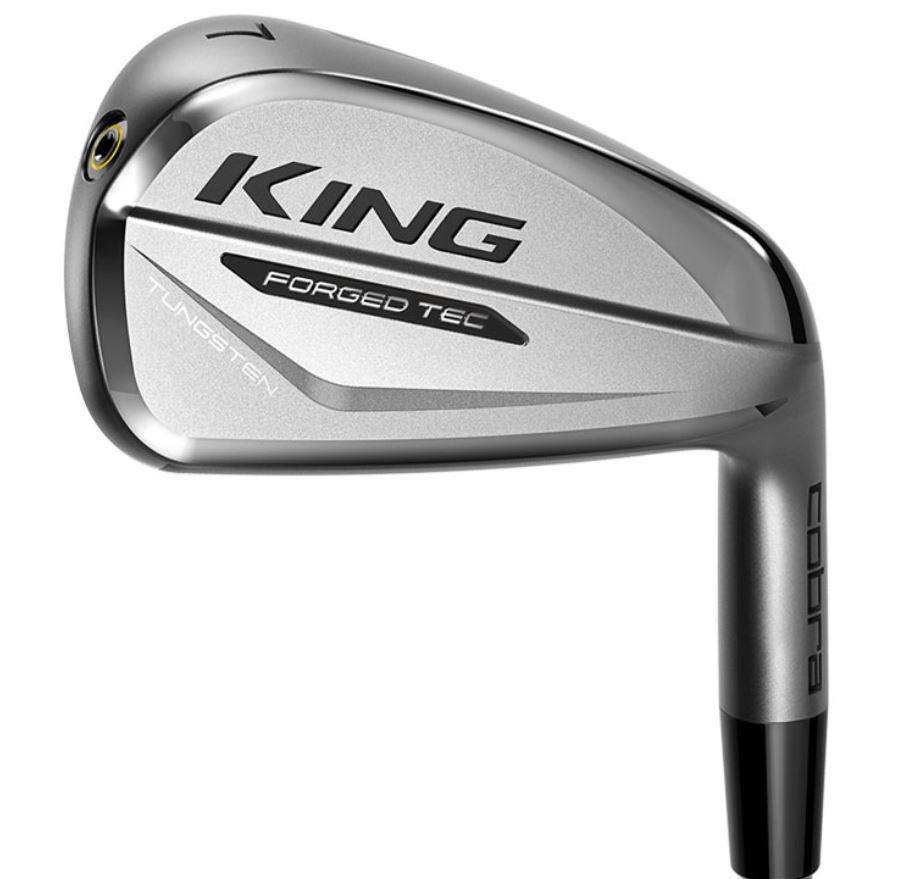
- Traditional muscle back design
- Foam microspheres are inserted into the cavity for improved feel and acoustics
- Each iron is optimized to deliver the ideal launch, apex, and spin through the bag
- A one-length shaft option is available with these irons
- Contains a forged PWRSHELL face
- Built with an expanded sweet spot to enhance forgiveness
- Promotes a high launch
- Designed to generate accelerated ball speed at impact
- Low CG provides a higher launch
- Excellent acoustics
- Reduced forgiveness
- Not ideal for high handicap golfers
Overall Score: 94/100
Cleveland launcher uhx iron set.
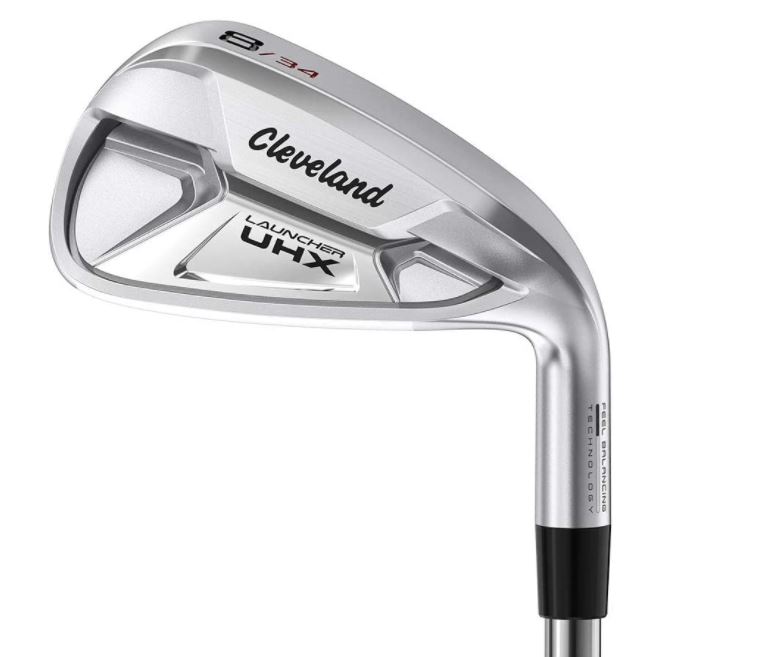
- Hollow cavity back design
- Contains a high strength steel face
- Designed with a V-shaped sole for improved turf interaction
- The face contains Tour zip grooves for amplified spin
- Long irons promote a high launch
- Short irons are designed to increase your control when attacking the pin on your approach
- Excellent turf interaction enables you to navigate challenging lies
- Designed to deliver maximum levels of spin
- Provide excellent distance
- Limited stock shaft options are available.
Overall Score: 92/100
Best forged irons for low handicappers – mini review, callaway x forged cb iron set.
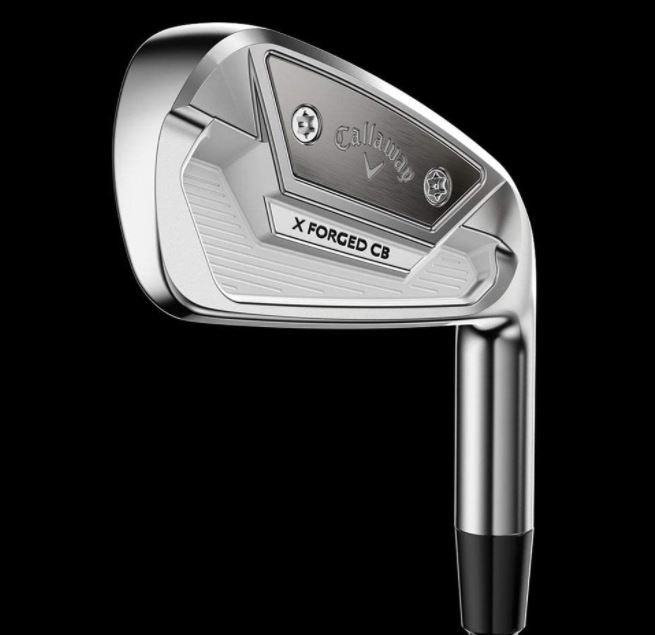
- A players iron head design
- Equipped with adjustable plate weights
- Constructed with MIM’d tungsten weighting
- Fitted with a Tour tuned faceplate
- CG is centered for a lower launch
- Promotes increased ball speed
- Delivers tour-level spin
- Excellent shot shaping ability
- The Project X IO shaft is optimized for every iron in the set
- An expensive set of irons
- Not ideal for mid and high handicap golfers
- Limited forgiveness
Srixon Z-Forged Iron Set
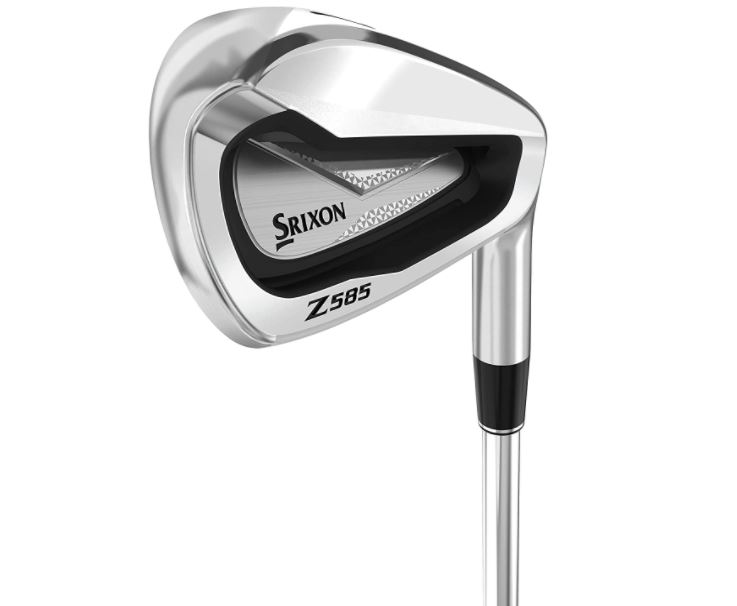
- Classic muscle back iron design
- Forged from 1020 carbon steel
- Designed to shape shots
- Tour V.T sole promotes consistent ball speeds for a consistent launch
- Soft feel on shots off the center of the face
- The set includes a 3-iron, which is not common to find anymore
- Impressive acoustics
- Delivers consistent ball speed
- Excellent shot workability
- Moderately expensive irons
- Not designed for the average golfer
- Offers minimal forgiveness
- There is only one stock shaft available
- Srixon only sell one stock grip with these irons
Titleist T200 Iron Set
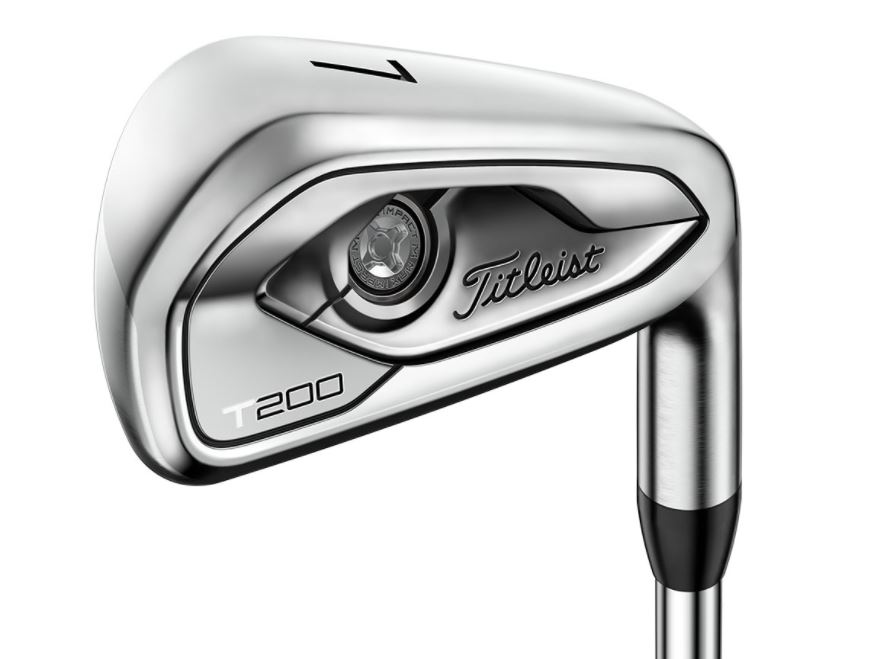
- Tungsten weight added to the heel and toe for increased MOI
- Forged L-face prompts increased ball speeds
- Lower CG in the long irons for a higher launch
- Enhanced dampening qualities
- Designed to deliver accelerated ball speed anywhere on the face
- Multiple stock shaft brands are offered
- Phenomenal acoustic feedback on shots out of the sweet spot
- Soft feel and minimal vibrations on strikes out of the center
- Delivers consistent distance
- Stock shaft options are only suited to golfers with fast and moderate swing speeds
- The lofts of the shorter irons are stronger than most sets, leaving you with a sizeable gapping challenge between your pitching wedge and the next wedge in line.
After looking into the pros and cons of forged irons, it is clear that these clubs are built for superior golfers. While forged irons offer incredible feel, acoustics, and greenside control, they are unforgiving and difficult to play.
Even though most of the forged irons that we looked at were best suited to lower handicappers and pros. There are options for mid to high handicappers. If this describes you, then I suggest testing a set of the Mizuno JPX921 Hot Metal Iron s .
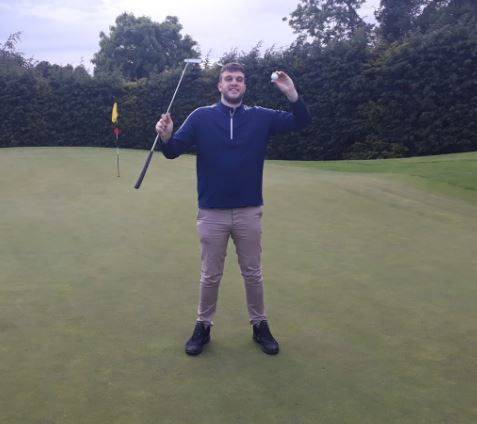
Hi, I am Matthew, a mid handicap golfer who likes to play as much as possible. I love trying out new gear and this blog is where you can find all the gear I have tested over the years!
Share this post:
© 2024 Amazon Associates Program. Southampton Golf Club is a participant in the Amazon Services LLC Associates Program, an affiliate advertising program designed to provide a means for sites to earn advertising fees by advertising and linking to Amazon.com. *Amazon and the Amazon logo are trademarks of Amazon.com, Inc., or its affiliates.
Product Reviews
- The Garmin S62 vs The S60 – There Is A New Sheriff In Town
- Nikon Coolshot Rangefinder Review
- FORB Home Golf Putting Mat Review
- Garmin Approach S60 Premium GPS Golf Watch Review
- Putt-A-Bout Indoor Putting Green Review
- All Golf Equipment Reviews
- Privacy Policy
TOP 10 LINKS
- Best Beginner Golf Club Sets 2023 – The Ultimate Golfing Resource
- Best Golf Rangefinders 2023 – For Pin Seeking Golfers
- Top 15 Best Golf Gadgets 2023
- Best Golf Push Carts 2023 – Navigate The Course With Ease
- Best Golf Travel Bags 2023 – Arrive In Club Protecting Style
- All Golf Top 10 Best Product Lists
Golf Buying Guides
- Definitive Buying Guide For Golf Balls
- Golf GPS Watch Buying Guide
- Definitive Guide To Golf Rangefinders
- Ultimate Golf Gifts Buying Guide For 2023
- Golf Bag Buying Guide
- Golf Club Shaft Flex Guide

The 5 Best Forged Irons Sets – Reviewed and Compared
What works for one golfer might not work for another and a common debate is whether forged irons are better than cavity-backed irons. Today we will discuss the pros and cons of forged irons and then take a look at the 5 best forged irons sets currently available.
At a glance: Our Top 5 Picks for Best Forged Irons
- Our Top Pick: Wilson Staff D9 Golf Irons Best Value Forged Irons
- Srixon Z-Forged Iron
- Callaway X Forged CB Irons
- TaylorMade P770 Iron Set
- Mizuno Pro 225 Forged Irons
The Difference Between a Forged Iron and a Regular Cavity Backed Iron
Benefits of a forged iron, disadvantages of a forged iron, who should use forged irons, how to choose the best forged irons, our research parameters , what are the best forged irons of 2024, are forged irons really better / are forged irons better than cavity back irons, what are the easiest forged irons to hit, what handicap should use forged golf irons, can high handicappers use forged irons, why are forged irons harder to hit, do forged irons last longer, what are the characteristics of a great forged iron set, related articles, what are forged irons.
Forged irons are manufactured from a single piece of metal and position more weight in the center of the clubhead. These provide maximum feedback and a soft feel which experienced and better players will require.
The process of manufacturing forged irons is quite different and more expensive than the process used in manufacturing cavity-backed irons.
This is because cavity-backed irons are manufactured by putting several components together. Furthermore, it enables manufacturers to position the weight around the perimeter of the club thereby reducing side spin and creating a larger sweet spot for more forgiveness for new players.
There are plenty of reasons to choose forged irons , like how they:
- Enable you to exercise more control and achieve more accuracy
- Are thinner than cavity-backed irons
- Have a more compact shape behind the clubface and smaller club heads
- Make it easier to hit a variety of ball flights, draws, and fades
- More expensive
- Less forgiving
Forged irons are aimed at low handicappers. This is especially true if they’re blade-shaped as well. Most forged irons are not suitable for high handicappers as they don’t provide enough game-improving qualities. On the other hand, they provide plenty of control for more experienced players.
While it’s virtually impossible for forged irons to provide as much forgiveness as cavity-backed irons, you should still consider just how forgiving you need the irons to be when shopping. You can often find a set that provides the best of both worlds to be a little forgiving but still provide control.
Some forged irons and biased for players who naturally draw or fade so make sure you find an ideal set for your swing style.
Vibration control is another selling point for certain forged irons. Many golfers want the satisfying feedback without the potential joint issues.
Quick Overview: Our Top Picks for 3 Best Forged Irons
Golfspan is independent and not pressured by manufacturers to recommend products. We were not paid for the reviews in this article. These forged irons were selected by our team, who have over 100 years of experience playing golf and thousands of hours reviewing products. We may earn an affiliate commission when you purchase something through our retail links.
Review of The 5 Best Forged Irons
If you consistently and confidently strike the ball well, you might want to consider playing with forged irons. We look at 5 of the best options to consider.
1. Most Forgiving Forged Irons – Wilson Staff D9
- Forged heads
- Power hole technology
- Weight optimization for more consistency
- Eye please aesthetics
- Affordability
- Very fairly priced
- Reduced vibration at impact
- Perimeter weighting negates the true forged iron characteristics
Wilson is one of the biggest names in the world of sport covering nearly every sport you can think of. They have been active in golf for many decades and continue to produce quality equipment that can compete with most brands.
The company offers a wide range of cavity-backed irons as well as some forged irons. The best-known forged irons in their stable are the D9 Forged irons.
They do not compete with the most expensive forged clubs but offer good quality forged irons at an extremely affordable price making it a great option for mid-handicap golfers that want to experience the feel and benefits of forged clubs before investing a huge amount of money.
Designed to be a forged iron using forged carbon steel, the D9 offers perimeter weighting and power holes for more ball speed and distance. The perimeter weighting adds to the distance and forgiveness while retaining the feel of a forged club.
Power holes aid in reducing the amount of vibration often found on mishits off a forged iron.
Sets come with an option of seven or eight pieces with either steel or Wilson Graphite shafts and Tour Velvet grips. Shaft flex available in regular, stiff, and senior shaft flexes
2. Best Approach Shots – Srixon Z-Forged Iron
- Stunning looks
- Easy to hit
- V-Sole technology
- More forgiving than expected
- Accurate distance control
- Not for golfers that do not strike the ball pure
Srixon is renowned for creating some of the most strikingly beautiful, forged irons that promote confidence in players of all levels. This combined with exceptional feel and impressive performance makes it ideal for good ball strikers that want added workability.
The irons are forged from a single billet soft 1020 carbon steel for an exceptional feel and a sleek design that promotes pure and consistent ball striking from a classic muscle back blade shape.
From the first time you lay your eyes on the Srixon Z-forged, you will know that these irons are aimed at a better player. The thin topline, fairly small offset, and compact length will remind you that this is a forged blade built for performance.
The sharp angular components found on most cavity-backed irons are replaced with muscular rounded curves. Possibly to remind you to keep your tempo smooth throughout and not to rush your swing.
Well-struck shots produce a comfortable thud sound off the face and contact is soft and muted. Once you get accustomed to the Z-forged irons you will soon realize where contact was made on the face of the club.
You can expect quality from the Srixon Z-forged with little forgiveness. After all these clubs are meant for the better ball strikers. Any mishits will immediately show in the distance and trajectory of the ball.
As with most other blades, you can expect to generate more spin with the Z-forged irons. This increases the workability of the clubs.
Srixon’s V-sole design is incorporated into the design of the Z-forged irons. This design stops the clubhead from digging into the turf for a smoother transition after impact.
The Z-Forged comes standard with Nippon N.S. Pro Modus3 Tour 120 shafts.
Not all golfers will find the Srixon Z-forged to their liking as it requires you to have the rights skills and ball striking abilities to appreciate the qualities that it offers. These irons have been crafted for Tour players and highly skilled amateurs.
The classic muscle-back blade irons offer extreme versatility anywhere on the course.
3. Best Value – Callaway X Forged CB Irons
- 1025 forged mild carbon
- 360 Face Cup and VFT
- Precision optimized center of gravity
- Good for shot shaping and control
- Ample distance
- Multi-material construction
- Lightweight and playable golf shaft
- Not ideal for fast swing speed
Callaway has perennially produced quality irons that have found their way onto many professional tours. The Callaway X Forged CB is a set of irons that broke with the traditional way and set a new standard in the construction of forged irons and is generally accepted as the best forged golf irons available.
Forged from a 1025 mild carbon steel body with Urethane Microspheres into a forged iron. This provides an awesome feeling at the impact on one of the softest irons without having to sacrifice distance.
Variable face technology (VFT) allowed Callaway to produce a club with the feel of a forged club while retaining a hint of forgiveness. This enables low-handicap players to work the ball and shape their shots at will.
The face is constructed using multiple materials to assist you in getting extra ball flight without sacrificing control. The face is geared to create the ideal launch angle off any iron in the set. This enables you to generate a generous spin to land the ball softly on the green.
Callaway engineers designed the renowned 360 Face Cup to deliver tour performance and consistency for pinpoint accuracy on approach shots to the green.
Fifty grams of tungsten is infused into every clubhead to promote better shot-making, ball trajectory, and ultimate control.
Callaway’s X Forged CB is extremely competitive in the looks department with its shape influenced by what tour players prefer. It is designed with a classic look offering a straight leading edge, higher toe line, thin top line, and a smooth hostel transition.
Although these are forged irons that offer good workability and precision, their center of gravity is placed low to generate a great launch angle and ball flight.
True Temper Elevate 95 Steel shafts are standard which are suitable for the mid swing speed player.
Backed by the Callaway brand you can rely on the quality and durability of the X Forged CB range.
If you feel ready to move up to forged irons from your cavity-backed irons, the Callaway X Forged CB is as close as possible to perfection.
Configuration:
- Available in left and right-hand orientation
- The shaft is available in either steel or graphite
- Shaft flex available in Stiff, Regular, and Extra Stiff
- Standard set configuration available
- 3-9 Iron, PW
- 4-9 Iron, PW
- 4-9 Iron, PW, AW
- 5-9 Iron, PW
- 5-9 Iron, PW, AW
4. Best for Distance – TaylorMade P790 Iron Set
- Workability
- Forged hollow body construction
- Low profile tungsten weighting
- Speed Pocket
- Versatility
- Impressive feel
- Long-distance
- Consistent launch and ball speed
- High launching
- Price tends to be in the upper levels
TaylorMade has delivered some of the top forged irons and cavity-backed irons over the last decade. The TaylorMade P790 only just shades the TaylorMade P770’s in looks and performance.
A soft 8620 carbon steel hollow body design is linked to a high-strength forged 4140 carbon steel WrapFace. The design combines the muscle back styling with an internal cavity that is filled with TaylorMade’s SpeedFoam ultra-light urethane foam injected inside the head.
The internal cavity and SpeedFoam offer forgiveness that is more often found on perimeter weighted clubs.
A new design provides a thinner forged face with progressively located ICT. This innovative design allowed the engineers to maximize COR area while improving accuracy thus pushing the limits of face speed without sacrificing feel.
The P790 is designed for better golfers that appreciate quality, looks, and high performance. A well-rounded design provides everything you want in a forged iron, and some more. The P790 was designed to offer the look, feel, and feedback of a true blade iron.
A low-profile tungsten weight promotes a lower center of gravity and higher launch.
Shafts come as either Dynamic Gold Steel or the TM Dual Feel steel options.
A combination of the TaylorMade technologies, including their Speed Pocket technology, offers you some of the best golf clubs that TaylorMade has ever produced. It offers remarkable distance and accuracy.
The P790 forged irons are aimed at the better golfer, but with all the technology included it is possible for mid to high handicap golfers to experience the feel of a forged golf club.
Irons are available in left-handed and right-handed orientation with graphite or steel shafts. Shaft flex availability in Regular, Stiff, and Extra Stiff.
Sets can be configured as:
5. Premium – Mizuno Pro 225
- Has the look of a players’ iron
- Generates consistent ball speeds
- Nippon Steel Modus shaft is standard
- Performance, feel, & accuracy
- Grain flow forged
- CNC milled from the sole up
- Impressive groove technology
- Stability frame
- Pearl brush finish
- Priced at the upper end of the pricing spectrum
Mizuno has a long history of producing excellent forged irons. The Mizuno JPX 921 grain flow forged irons follow the phenomenally successful JPX900 and JPX919 irons and now the even new range of Pro models like the 225 at the peak of their forged irons range. As you can image from the prestige, these are some of the best forged irons of all time.
A slightly longer blade offers you the ultimate in hitting straighter shots, but you may lose a little of the workability.
The use of Harmonic Impact Technology provides a fine-tuned head profile that delivers an impressive feel and feedback at the point of impact.
Mizuno’s use of their Stability Frame opens the heel of the club for a more stable launch while it produces tour preferred vibration and sound.
The use of CNC Back Milling from the sole up creates minimum face thickness over a bigger area for consistency and increased ball speed.
The clubheads are finished off in a durable Pearl Brush chrome plating to soften the Pro 225’s precise lines in sunlight.
The standard issue is the Nippon steel modus shafts for enhanced consistency and control.
Mizuno Golf Pro 225 Forged irons are highly rated in the premium class and suitable for the better player requiring some distance and forgiveness in their iron.
The pro 225 forged irons come with one degree stronger loft than the older JPX919 Forged and offers eleven percent less backspin. These changes have resulted in a 0.8 percent increase in ball speed, a 6 percent higher launch angle and ball flight, a 0.9 percent steeper landing angle, and an increase of six yards in distance.
Solid contact generates the feel of a well-struck Mizuno blade.
It is no secret that Mizuno golf clubs are priced in the upper end of the spectrum. Yet, the quality, durability, and playability make it worth every penny.
A standard set configuration consists of four iron through a gap wedge. Nippon shafts are available in steel with a regular or stiff flex.
Best Forged Irons 2024 FAQ
While it’s hard to go wrong with any set of premium forged irons from a reputable manufacturer, our favorite is the Wilson D9 Forged series. They offer fantastic value for money and still have slight game-improvement qualities.
Forged irons are only better for controlling your shots. They allow you to draw and fade your shots easier rather than striving to keep your shots straight.
If you’re looking for easy-to-hit irons you’d be better of with cavity-backed. But, if you’re sold on forged irons, check out the Wilson D9’s.
Low handicap players of 10 or less are the target market for most forged irons. Yet, you can still find forged irons that are more suitable for golfers with a handicap of up to 20, like the Wilson D9 irons which are among the best forged irons for mid handicappers.
Yes, but without the game improving qualities of cavity-backed irons, high handicapped players will be more likely to accidentally slice their shots.
Forged irons are harder to hit as their center of gravity is in the center of the clubhead. This means that sweet spot is smaller than on other irons and they are therefore less forgiving.
Irons are the longest-lasting clubs in a golf bag. While forged irons do technically usually last longer, most golfers would never notice the difference.
That depends on your swing, but you should generally look out for:
- Milled soles or faces
- Shot shaping
- Vibration control
Final Thoughts
Selecting a forged iron is normally only in the scope of better ball-strikers with a healthy budget. This offers them the benefit of being able to work the ball as the distance is not a problem.
We have offered you a few alternatives in the article at a range of prices and aimed at various levels of ability. You don’t necessarily have to be a low handicap golfer to experience the feel of playing with forged irons. Wilson D9 Forged irons will provide the entry-level experience at an affordable price from where you can upgrade if it is compatible with your ability.
It is extremely difficult to single out any of the premium branded forged irons as they are extremely competitive. Brand loyalty may drive you to select a set from your preferred brand.
- The 7 Best Golf Irons Available This Year! Reviewed For You!
- Most Forgiving Callaway Irons
- Best Forgiving Golf Clubs
Chris Daniel
Chris's love for golf is only rivaled by his wanderlust. A globetrotter at heart, He’s played courses throughout Europe and Asia and at home in NSW, Australia. With a writing style as smooth as his golf swing, he’ll help you find the right gear to match your skill level and style. You can connect with Chris on LinkedIn .
- Chris Daniel https://www.golfspan.com/author/chrisdaniels What Does a Country Club Membership Cost? (Average Monthly Prices + Fees)
- Chris Daniel https://www.golfspan.com/author/chrisdaniels 9 Best Golf Push Carts: Pros, Cons, Reviews
- Chris Daniel https://www.golfspan.com/author/chrisdaniels The 7 Best TaylorMade Drivers
- Chris Daniel https://www.golfspan.com/author/chrisdaniels 7 Best Srixon Golf Balls: Pros, Cons, & Specs
You might also like these
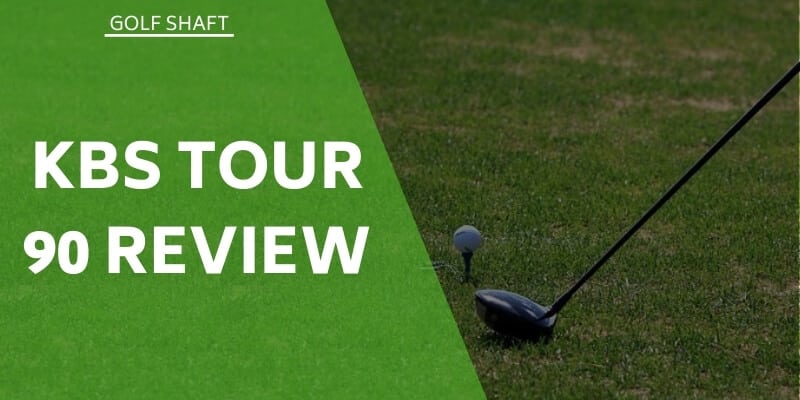
CONNECT WITH US

The Sand Trap
Golf News, Reviews, and Commentary
Comparing the Mizuno JPX919 Irons
Mizuno’s JPX919 line offers three (make that four) different models with very different playing characteristics. But find the right one for your game and good things could happen on the course.
Share this with your golf buddies:
- Click to email a link to a friend (Opens in new window)
- Click to share on Twitter (Opens in new window)
- Click to share on Facebook (Opens in new window)
The Mizuno JPX919 family debuted last fall with three members (and recently added a fourth). I compared launch monitor results from a few range sessions with 7-irons in the Hot Metal, Forged and Tour models. My findings are below, but first let’s take a look at what goes into these irons.
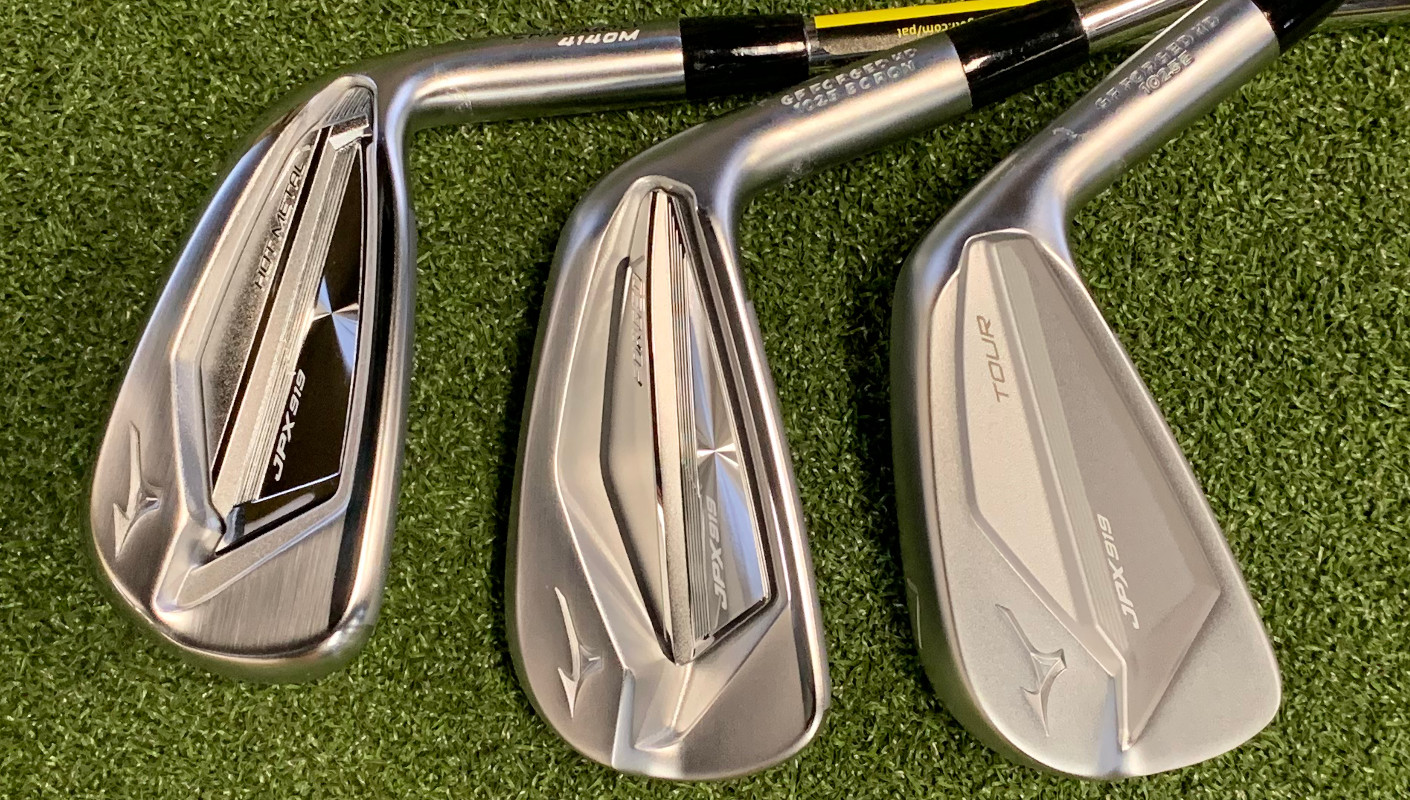
Technology and Appearance
JPX919 Hot Metal The JPX family’s most forgiving is a good looking game improvement club. Sure it’s got a bit of a dad-body thing going—the topline and the club’s overall shape are just a tad thick—but compared to other offerings in the category, the 919 Hot Metal is a sharply dressed hunk of Chromoly.
The Hot Metal gets its name from that Chromoly 4140M it is cast with. Mizuno says that Chromoly 4140M is a highly resilient material that helps it craft a multi-thickness face that improves ball speed and feel.
A one piece “cupped geometry” is designed to enhance feedback, while the open heel frame is said to improve stability and launch for optimal ball flight. Mizuno tweaked the sound ribs from previous models to better produce satisfying vibration patterns at impact.
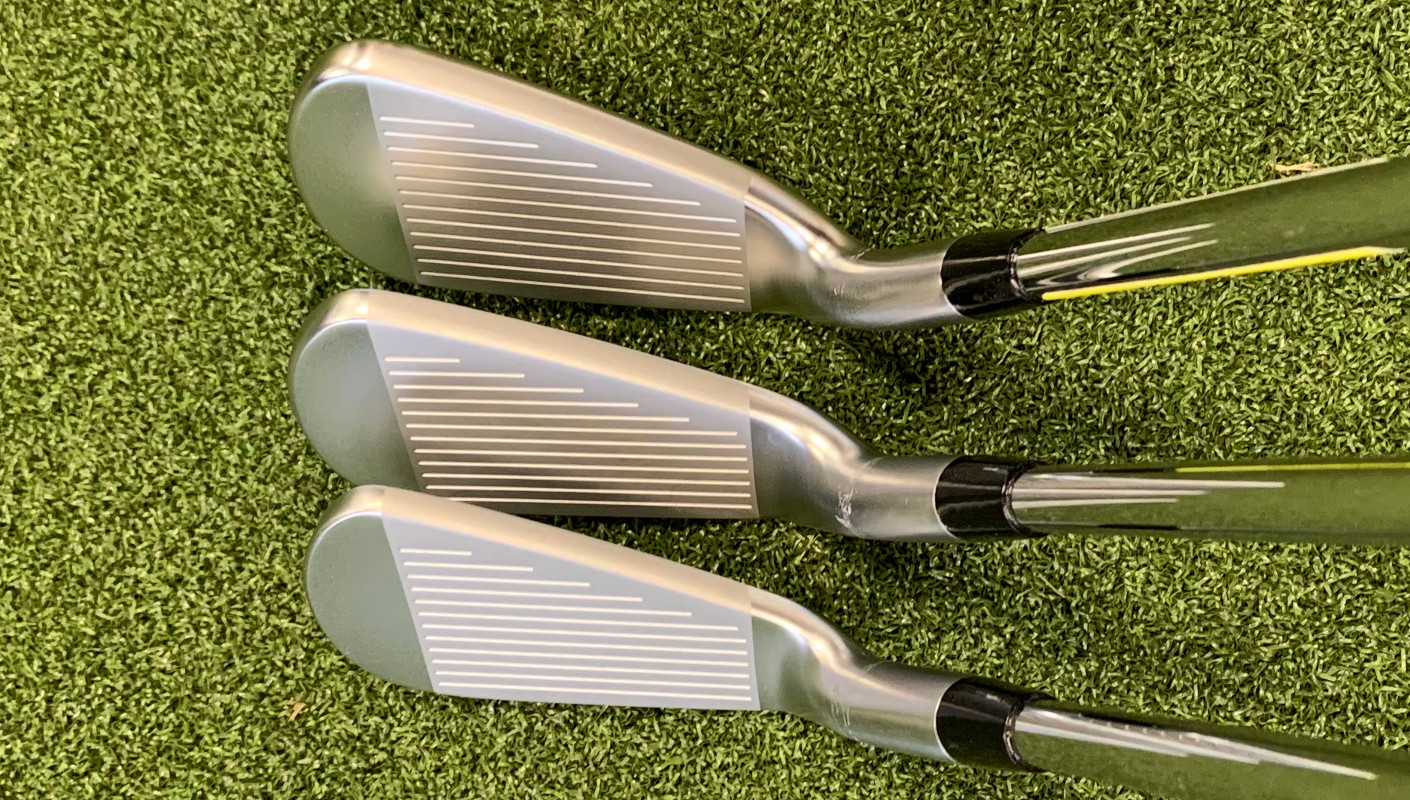
JPX919 Forged The JPX919 Forged most neatly aligns with the better player distance-iron category, though its slightly oversize frame and ample cavity give it a good dose of game improvement qualities, as well.
A bit of boron added to the steel that the club head is forged from increases its strength by a whopping 30%, allowing a thinner face design and other advantages.
Mizuno takes advantage of that strength by using CNC milling to create a larger area of minimum face thickness. Read that “bigger sweet spot which promotes more consistent ball speed and, hence, distance.” This milling also lets Mizuno reposition weight from the club face to lower and deeper in the head (note the “pocket channel” on the back of the clubface) to enhance launch conditions in the mid and long irons.
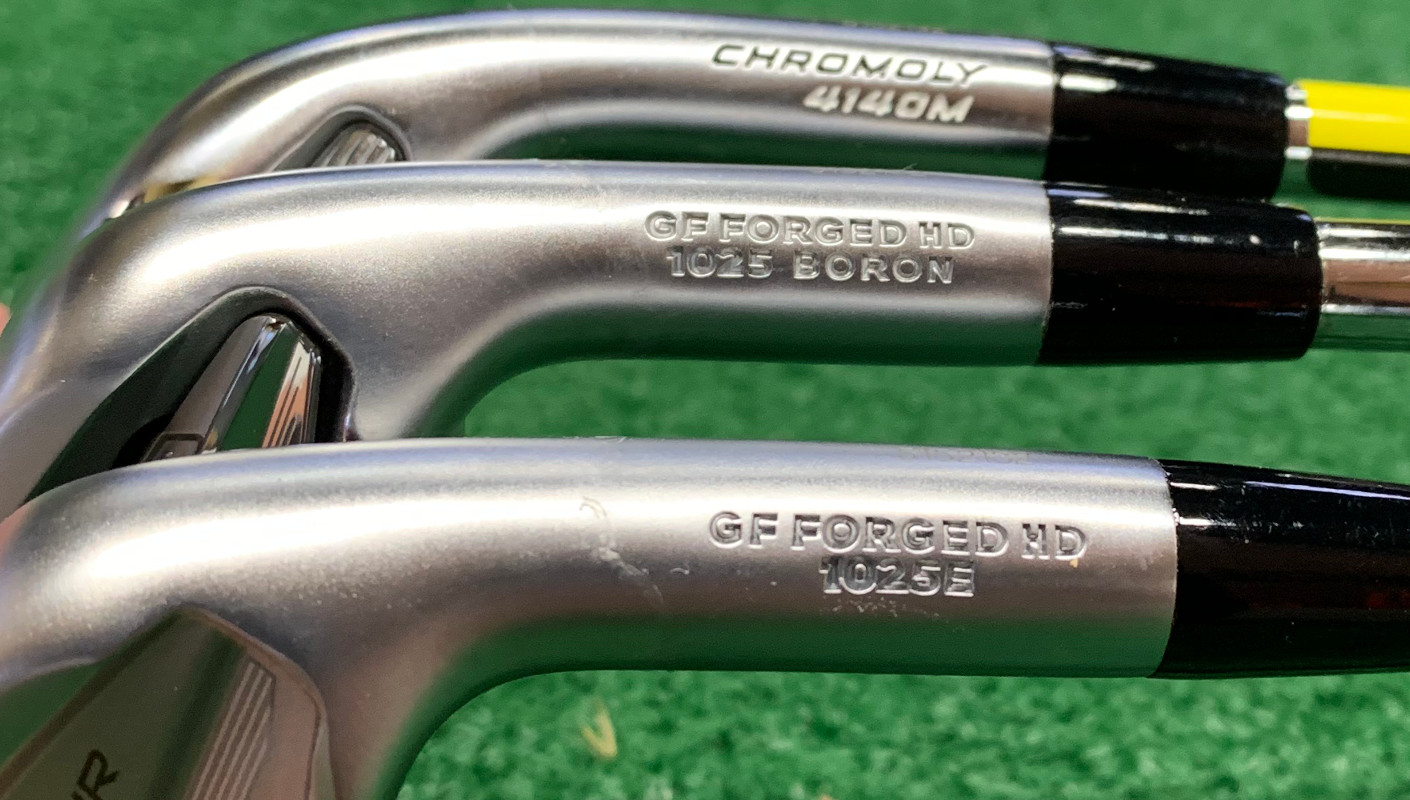
The frame of the club head is designed to provide strength, launch and distance, while also promoting the sound and feel players expect from a Mizuno club. Speaking of feel, the 919 Forged are (duh) forged from 1025E mild carbon steel to produce the feel that has earned Mizuno a devoted following over the years.
The Forged comes in a set that covers a lot of ground with lofts ranging from a 22° 4-iron to a 46° PW (not to mention a 51° GW) providing a nice compromise between distance/game improvement lofts and those of more traditional better-player irons.
JPX919 Tour As you’d expect, the 919Tour is designed to be, by far, the most workable and better-player-appealing of the JPX line. In some ways it looks less forgiving than the MP-18 SC, Mizuno’s popular better-player cavity back. The top line of the club is a very bladelike 4.6mm on the 7-iron. Butter knife, anyone?
The matte gray finish of the club makes it stand out from the other JPX models, but you’re not very likely to mistake it for its brethren anyway. The 919 is more compact and streamlined version of the 900 Tour. Unlike many brand, the “tour” in its name is not hyperbole. This club is being played on the PGA Tour and other major tours worldwide.
Mizuno uses a process it calls “Grain Flow Forged HD (High Density) to craft the 919 Tour from a single billet of 1025E Pure Select mild carbon steel. Mizuno is known for its forgings that its devoted followers say produce some of the softest and purest feel you can get from golf clubs.
Mizuno’s Stability Frame found in the other JPX models carries over to the 919 Tour, as well, providing enhanced launch to help shot achieve a loft appropriate apex for soft landing son the green.
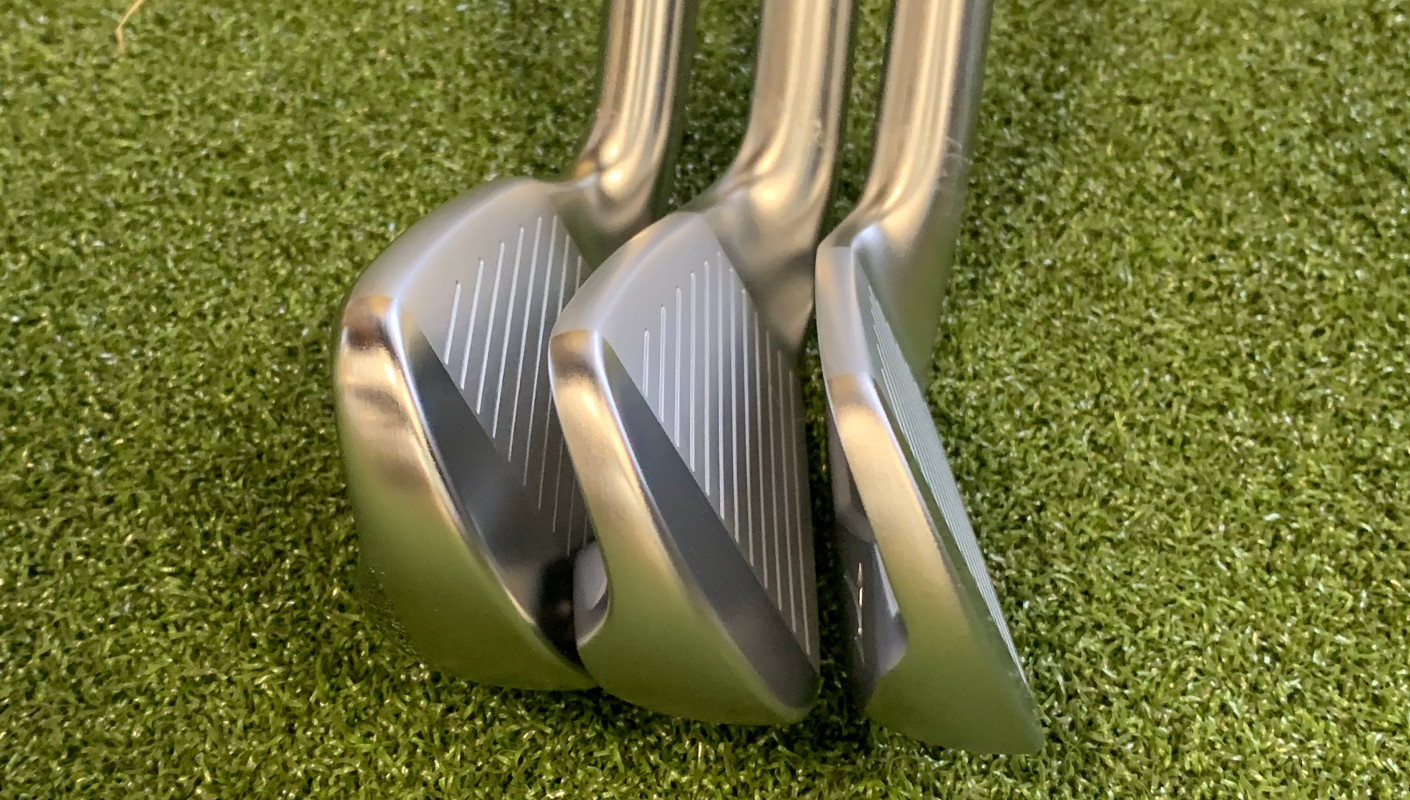
Performance and Conclusions
What do you want from an iron? Are you a social golfer, primarily concerned with laughs and just getting around the course in a respectable score? Or are you driven to spend a lot of time working on your swing and getting better? Maybe you’re a combination of the two. No worries. Mizuno has you covered.
A couple cold weather range sessions yielded the following averages. As you can see, all of the Mizunos launched high with more than adequate distance (considering that both range sessions were in 30° weather). The loft of each model is 2° weaker in each model from left to right below, so you are looking at effectively a club’s difference in both loft and the corresponding distance. Spin was noticeably lower in the Hot Metal.
JPX919 Hot Metal Boom! The Hot Metal is just plain fun to hit. There’s no harsh feel on less than stellar contact, and the ball still explodes off the clubface when you pure it. Surprisingly soft feeling for a cast club, the Hot Metal offers less feedback than its forged brothers, but you can still tell heel from toe hits. Anything in the vicinity of center contact tends to feel pretty similar. Since this club is aimed at mid-cappers and higher, that’s going to be just fine since at that level just making contact is more important than making perfect contact. We’re aiming at advancing the ball and getting it somewhere on, or at least near, the green, at this point.
The Hot Metal is a distance machine. I felt like I could almost swing as hard as I wanted to with impunity. As long as club face met ball, the Hot Metal generated ample distance and good direction. I generated a 12-yard vertical dispersion on good swings. That’s a lot, but compared to some clubs I’ve hit that seem to have extreme “hotspots” on the face, 12 yards is playable. If you shoot for the center of greens, plus or minus 14 yards is still going to have you putting most of the time.
This club is going to do good things for lots of golfers who just want to get out and play rather than spending time working on their game. Rather than Game Improvement, we should call this sector Game Enjoyment. The Hot Metal will be just fine with you pulling them out of the garage once a week or once a month for a round. Within reason, they aren’t going to punish you too much for not spending time with them. For a company known for its Forged offerings, the 919 Hot Metal is a very strong contender in the game improvement/distance category.
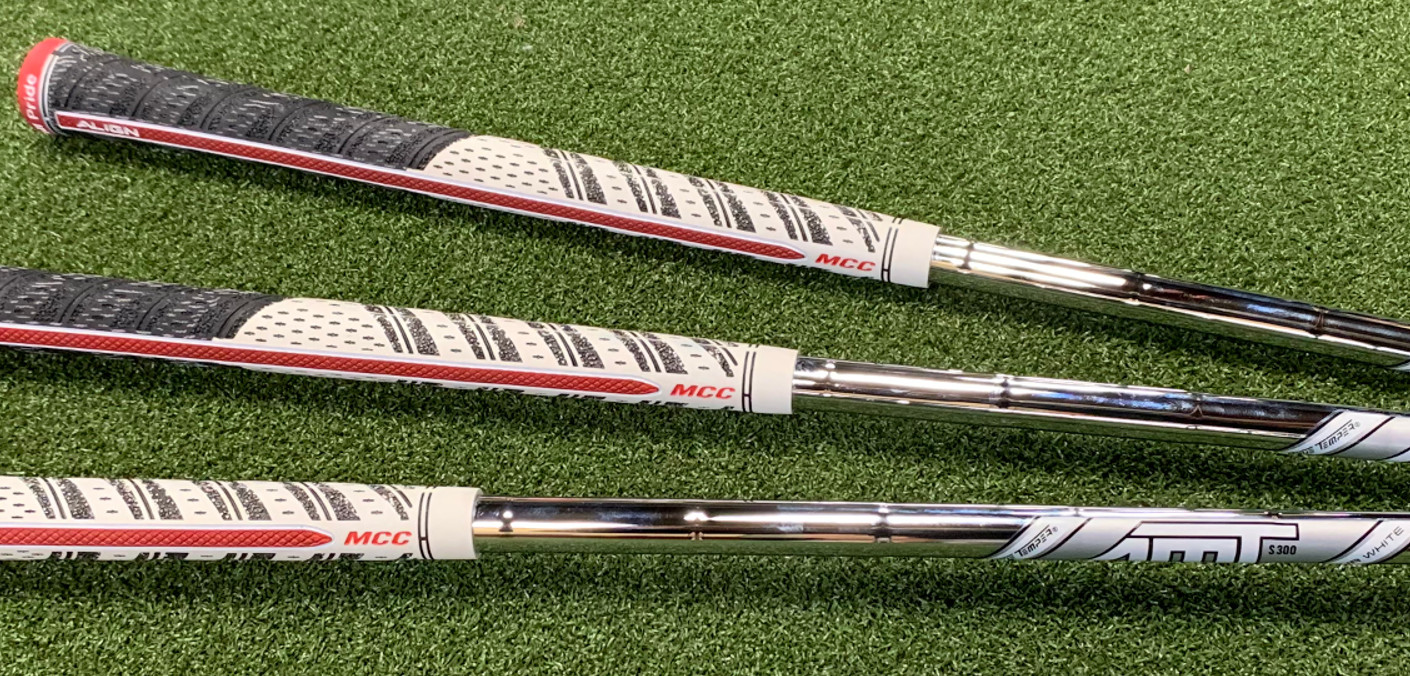
JPX919 Forged Your relationship with the JPX919 Forged is going to be a little more time consuming but only a little. The Forged is a better fit for players who are going to visit the range, at least on occasion. There’s a fair bit of forgiveness here, but you won’t want contact to stray too far from the center of the club face.
When it comes to distance, the Forged is a little more than a half club shorter than the Hot Metal, but it also has about a half club higher loft so that’s to be expected. I found that the Forged likes to send the ball way up compared to its brethren (which are not low launching by any means). That’s going to be great for mid-cappers who may struggle to hold greens, but those who play frequently in the wind may want to take note.
JPX919 Tour Comparing distances with the other 919s is not a fair fight for the Tour. The Tour 7-iron loft is 34° 32° in the Forged, and 30° in the Hot Metal. So if when you’re comparing the Tour’s distance to the Hot Metal, you are essentially comparing a 7-iron to a 6-iron (that just happens to be stamped with a “7”). The yardages I got bore that out. The Tour was around a club and a half shorter than the Hot Metal and almost a full club shorter than the Forged.
The Tour requires a good bit more precision than its two stablemates. You don’t have to be Brooks Koepka, but it wouldn’t hurt. A friend of mine who runs a golf shop likes to say, “Forget about that ‘JPX’ on the club, the Tour is an ‘MP’ in disguise” (referencing Mizuno’s better player line).
The Tour wants to be hit pretty close to center all the time. On the launch monitor, I experienced a noticeable drop in smash factor compared to the other two models, which attests both to the precision that the Tour demands and my less-than-precise early season swing. But if your swing is up to its demands, the Tour really delivers.
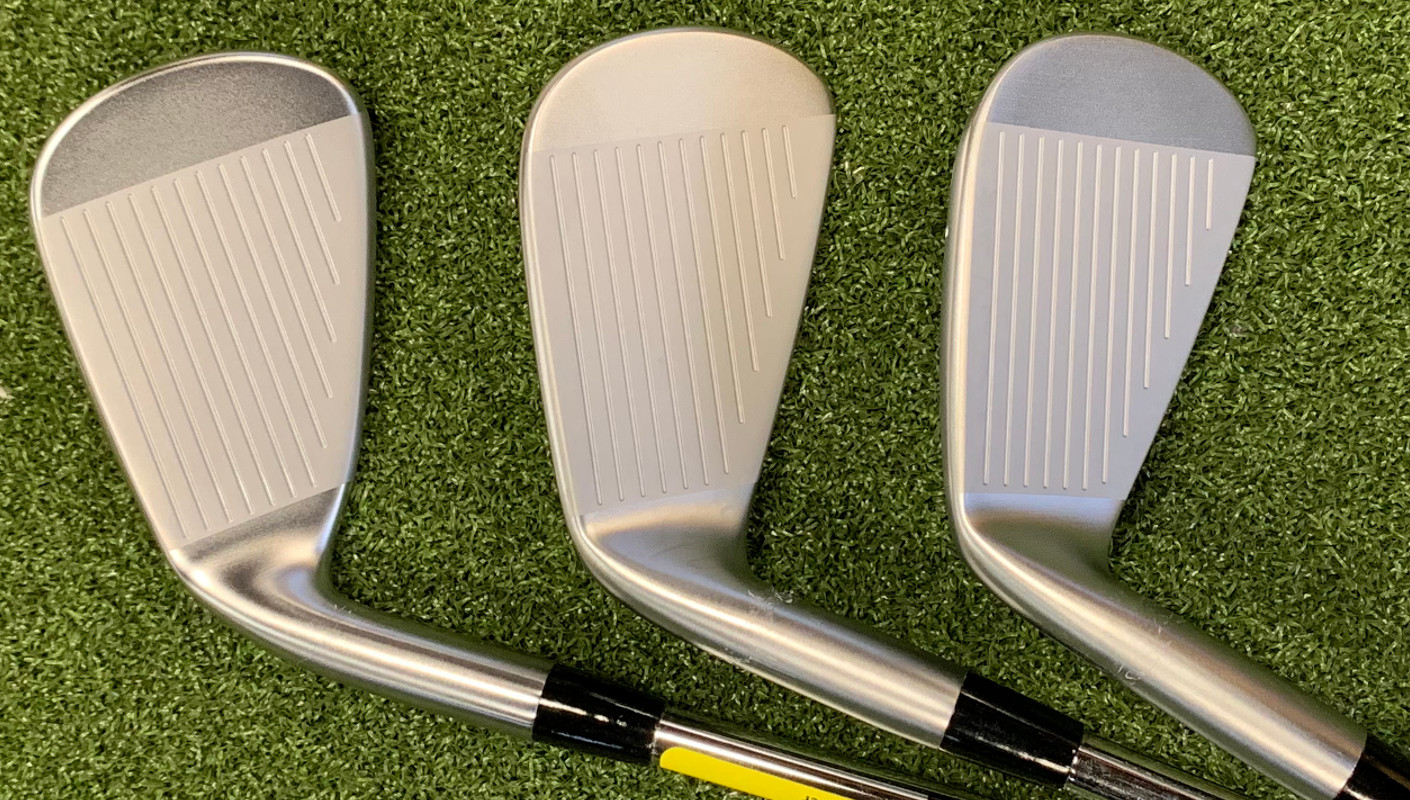
My best swings resulted in beautiful ball flights, a great sensation of compressing the ball and ample spin to stop the ball on the green. I would love to play this club all the time, but it’s probably not the best choice for me. While there’s enough forgiveness in the Tour to help you get around the course, you will need to make consistently good contact to truly score well (that or you better chip really well). The Tour is a demanding club, but if you have good ball striking and reasonable swing speed it could become your new best friend.
JPX919 Hot Metal Pro Late to the party is the Hot Metal Pro, arriving with less offset and a lot of promise. This club could be a great solution for a wide range of golfers. Presumably, it will be as long and forgiving as the regular Hot Metal while providing a bit more shot shaping ability and will just look better for players who don’t like the look of an offset club at address. Kudos to Mizuno for offering a game improvement iron that should still appear to better players looking for more forgiveness and distance.
Mizuno has definitely upped its game with the 919 family of irons. There’s something here for nearly every golfer out there. High handicappers are going to get a lot of help from the Hot Metal. Solid ball strikers are going to find the workability and consistent ball flight and distance in the Tour. And those of us in between will find the Forged to be a good friend on the course.
4 thoughts on “Comparing the Mizuno JPX919 Irons”
The Mizuno JPX919 Irons all 3 models look great and feel are some of the best in the golf industry. Classic look and design and you can get many shaft option at none upgraded charges.
As for the Hot Metal and Hot Metal Pro, how is the feel? I have the MX200s and love the forged feel. Yet at age 63, could use the distance. I never hit cast irons, this is why I am asking. Of course, when the time comes, I will also hit the 910 forged too while being fitted. Thanks
How is the feel for the Hot Metals? I assume they are cast, not forged? I love the feel of my MX200s, yet at age 63 could use the distance of the Hot Metal. Never had cast irons so not sure how they feel compared to forged. I will definitely try the 919 forged to when getting fitted. Thanks
Hello, George Promenschenkel’s article dated 3/29/2019 is very helpful to me as I am considering buy Mizuno JPX 919 irons and looking for information whether the Hot Metal, Pro or Forged is the right set for me. There was a piece of information not included in the article regarding the specs of the equipment used in the testing phase, in particular, what shafts were used in each model club, regular or stiff, brand and weight of each shaft. If you would provide me with that information, I would greatly appreciate it.
Thank you, Jack
Leave a Reply
Your email address will not be published. Required fields are marked *
Notify me of follow-up comments by email.
Notify me of new posts by email.

Mizuno JPX 919 Tour Irons Review
Mizuno jpx 919 tour irons.
Out of the whole Mizuno JPX 919 iron lineup, the JPX 919 Tour is the club designed for the low-handicap players putting a premium on feel and control . While the JPX 919 Tour is easily the “sexiest” of the 919 lineup, it’s not for everyone. There are elements of added forgiveness for a “player’s iron,” but you better be a good stick to put these in play. If you ARE a good stick, then read on to find out what makes the JPX 919 Tour one sweet forged blade.
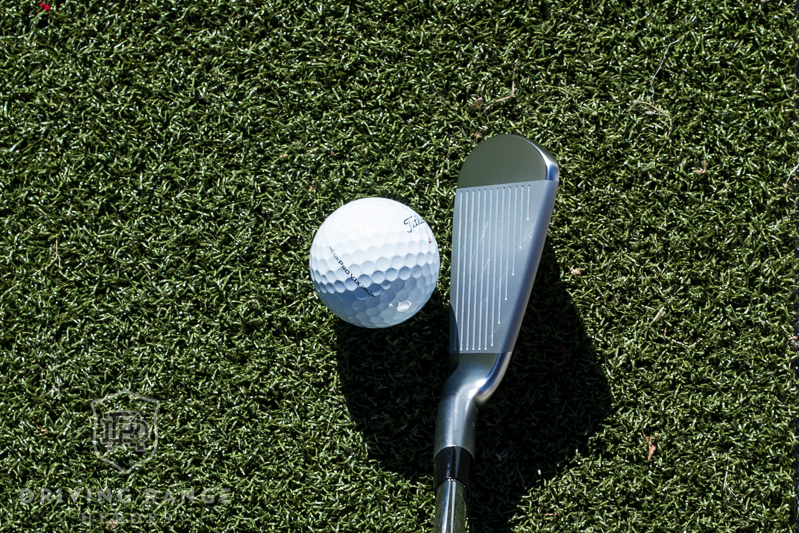
The Mizuno JPX 919 Tour has every bit of a modern blade look to it. No one is going to confuse these for your grandpa’s antique butter knives that have been sitting in the back of the garage since 1973. There’s also a lot of Tour-player influence in the design. One of those influences is the smaller blade length and a “lower heel profile” as preferred by the Mizuno stable of pros. Offset is minimal in the longer irons and only a bit noticeable. I wouldn’t classify the topline as razor thin, but it’s inline with most major blades on the market today. For comparison, the JPX 919 Tour topline looks to be about the same thickness at the MP-18 MB .
Looking at the “cavity” of the JPX 919 Tour, you will find the same mechanical look that has become synonymous with the JPX lines. It’s a slick streamlined look that certainly looks cool in the bag. The JPX 919 Tour is an easy trap to fall into based on looks alone, so make sure you can hit them first! It’s also worth noting that the famed YORO craftsman at Mizuno had their hands all over these irons. (That’s a great thing, trust me.) One of their major influences was making the shorter irons through the pitching wedge smaller and sharper. Though these irons still look modern, this is a clear influence of classic design that sticks around for good reason. The implementation is just more refined than the old days.
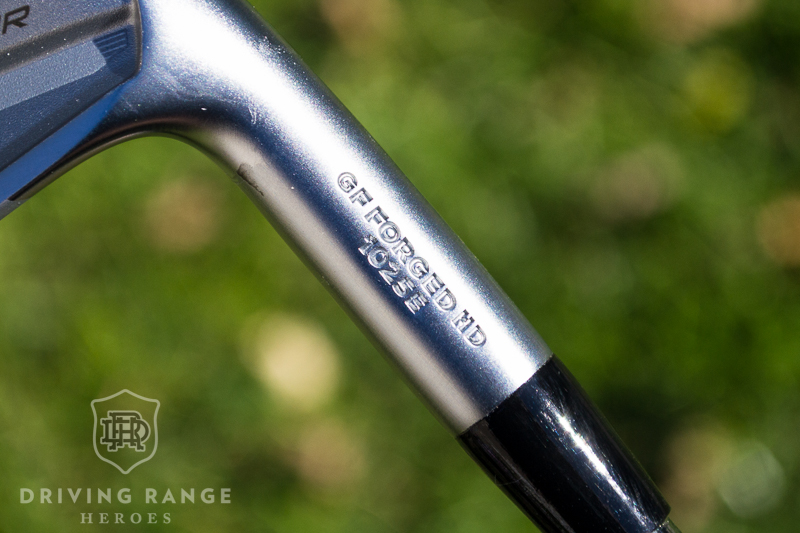
How Does it Feel?
I’ll be totally honest here – I’ve never been too fond of how the Mizuno JPX Tour irons have felt in the past. Much to my surprise, I felt the JPX 919 Tour was much better. A large reason for this might be that Mizuno dropped the boron from the steel. This made the forged metal feel too clicky in my mind. With the JPX 919 Tour, Mizuno forged each iron out of a single billet of 1025E “Pure Select mild carbon steel.” The Mizuno JPX 919 Tour brought back that signature feeling of an expertly-forged Mizuno iron. Good shots are rewarded with a responsive, yet soft and pure feel in your hands.
If you compare the JPX 919 Tour and MP-18 MB, the JPX 919 has a much different sole profile. The JPX 919 Tour is thinner toward the heel and wider at the toe. So what does this mean for feel? It means you get a much different turf interaction. The JPX 919 Tour has more of a glide through the turf as opposed to a rippping divot. Don’t get me wrong, the 919 Tour is plenty capable of digging a good trench, but a good swing will be smoother through the turf.
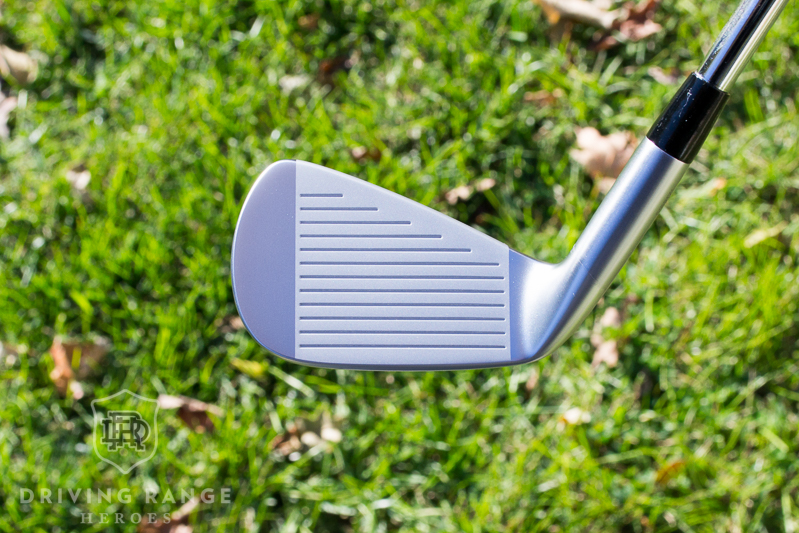
How Does it Sound?
Like the feel, the Mizuno JPX 919 Tour has a much-improved sound in my opinion. The older versions sounded almost “rocky” to me, even on good shots. With the JPX 919 Tour, we’re back to that forged sound we’ve always loved from Mizuno! I will say, the sound of the JPX 919 Tour is a bit on the firmer side compared to the MP-18, but it’s still a nice soft “click.” Thin and/or off-center shots sound pretty hard and will definitely let you know both in your hands and your ears. Like I said before, you need to be a good ball striker to play the JPX 919 Tour. Not all of us are Brooks Koepka out here.
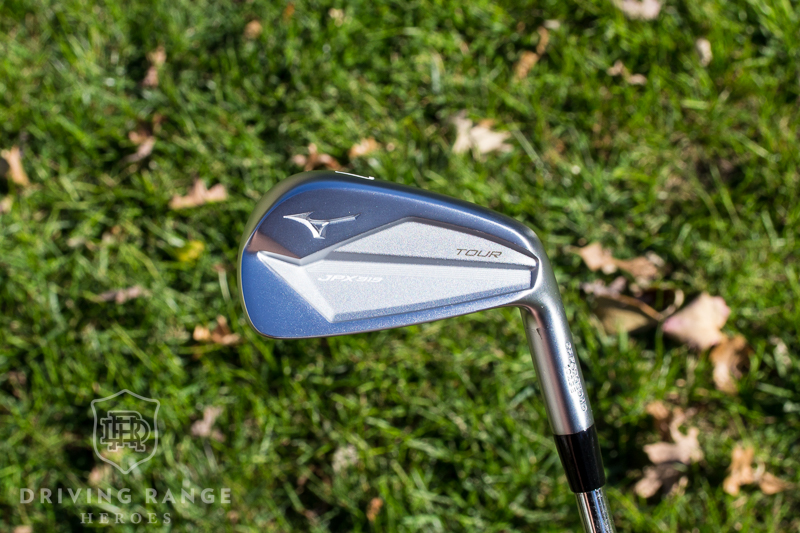
On-Course Performance
Again, let me reiterate, the Mizuno JPX 919 Tour is designed for good ball strikers looking for feel and control, not for distance. While there isn’t a ton of forgiveness, there is a little help via the perimeter weighting of the JPX 919 Tour. It’s not going to save you from a terrible shot, but it will allow you for a touch more generosity in the sweet spot.
Players looking for a little cleaner track through the turf may also prefer the JPX 919 Tour over the MP-18 irons. This sole seemed to track through a little more squarely and at an even depth. Of course, this is largely dependent on the player’s swing. Don’t get things confused though, the JPX 919 Tour can still be manipulated through the turf to play different types of shots. If you’re the “shot-shaping type,” you’re still going have all the maneuverability you need. All in all, the JPX 919 Tour is designed to allow a player to have total control on every shot and it accomplishes that goal well.
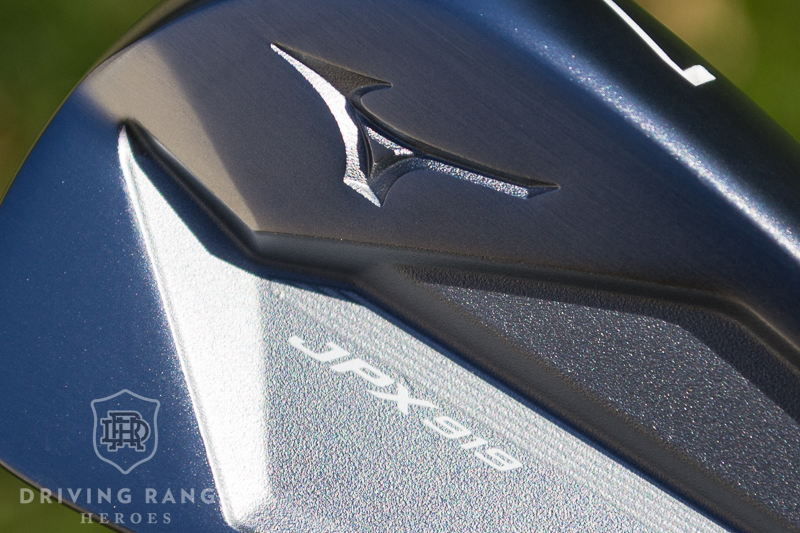
Final Thoughts
Should you have the ball striking for it, the Mizuno JPX 919 Tour is a really nice club. Really, it comes down to preferences. I would argue that the Mizuno MP-18 MB, MP-18 SC , and JPX 919 Tour are all in a similar group. They each just have slight differences to address personal preferences. While I personally prefer the overall delivery of the MP-18 MB, others will prefer the total package of the JPX 919 Tour more. Or maybe you need a little more forgiveness but aren’t looking for greater distance so you go the MP-18 SC route. What I can assure you of is that if you’re a good fit for any of those irons, you really can’t go wrong. Mizuno is making some of the best irons they’e made in a long time and the JPX 919 Tour is a perfect example.
Stock Mizuno JPX 919 Tour Irons Specs
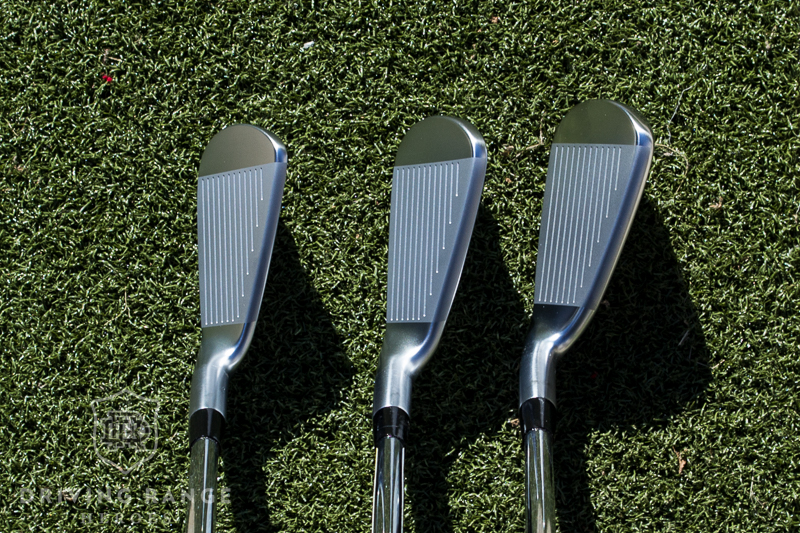
Related Posts:
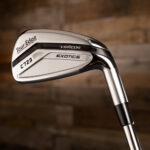
11 Comments
Excellent review. I’ve had these irons for 5 months now and I’d say your assessment is pretty accurate. For me, these irons are very playable. I also have 718 AP2’s and even with all the Tungsten Titleist builds into those irons, I feel like they are very similar to these in playability.
Oh man, I think the AP2 is MUCH more forgiving and player friendly. I like the 919 Tour a lot, but it’s for good strikers only! AP2 feels more comparable to the 919 Forged to me (I like the 919 Forged better however).
Bill Bush between the JPX tour and the AP2 I’m only interested in workability/maneuverability of the ball which is iron would you recommend all things being equal for a good ball striker thank you.
The Mizuno, but I’d consider the 919 Forged a better comparison to the AP2.
Great clubs. Got them in October and won two of the first three club competitions I played in, including the first one! Delighted with them. Our club pro does Mizuno and I went to be fitted for the forged model. Wasn’t getting the feel I liked so he put the tour head on…and wow! Have played Mizuno for 20+ years so can’t compare with the AP2…and at this rate never will be able to compare! #lovemizuno
can a 12 handicap player use these mizuno irons?
Can’t empirically say no because it depends on your game, but generally speaking, I’d say it’d be a bit of a stretch.
Would these be ok for a 3 handicap transitioning from cavity back irons?
In what sense? Likely comes down to specifics related to the user at that point, not just a handicap. They didn’t play like a cavity back when I tested them.
Excellent review man. Will surely try this out soon.
Leave a Comment Cancel
Your email address will not be published. Required fields are marked *
Email Address *
Save my name, email, and website in this browser for the next time I comment.
Popular Posts


Get plugged in…

Mizuno JPX923 Forged Irons Review
- on February 6, 2023
50 Words or Less
The Mizuno JPX923 Forged irons are a perfect bridge set for players moving into or out of Tour-style irons. Good forgiveness and very strong ball speed. Traditional look at address and thinner soles.

Introduction
Mizuno’s JPX923 iron family covers a lot of ground. On one side, it offers Mizuno’s maximum forgiveness in the Hot Metal [review HERE ] and the new Hot Metal HL [review HERE ]. On the other end is Mizuno’s most-played professional iron, the JPX923 Tour. The JPX923 Forged irons are the bridge. If you’re ready to step up from Hot Metal but still want distance and forgiveness, these are for you.

That bridge quality of the JPX923 Forged irons comes through from the first time you look at them. There are some shiny chrome elements that nod to the Hot Metal side, but the dimensions lead toward Tour. With the exception of the “JPX,” everything is silver or white which creates an ultra-clean look. The White-Satin Brush finish looks stellar .

At address, the JPX923 Forged irons are safely in the players category, toward the thicker side . They share their minimal offset specs with the JPX923 Hot Metal Pro [review HERE ], but are otherwise smaller in every way – blade length, top line, and sole width. For this iteration, Mizuno focused on making the 7-GW more compact, which enhances their appeal for better players.

Finally, I’ll offer a comparison to the JPX923 Tour [review HERE ] for those thinking about taking that final step. Above you see the JPX923 Forged (left) and the JPX923 Tour (right). The most standout difference, to my eye, is the thicker top line of the Forged – 1.5mm-2mm thicker throughout the set. There is markedly more offset in the Forged long irons, but the difference shrinks to nothing as you get to the PW. Additionally, the Forged has a longer blade length (between 1.5mm and 4mm) and a wider sole (1mm to just over 2mm). Overall, I would say that there’s a noticeable difference when they’re side by side, but the JPX923 Forged holds its own as a good looking players iron .

Sound & Feel
The sound and feel of the JPX923 Forged irons is a substantial upgrade over the previous version [review HERE ]. Impact is slightly below average in volume, creating a low-pitched “tock.” The sound is traditional but with a hint of explosiveness nodding to the distance it can produce. Through your hands, you’ll get a sensation that aligns with the sound: medium-soft and conventional with just a hint of pop .
Additionally, I was impressed with the level of feedback provided by these irons. Even small misses can be felt in the hands. These clubs are particularly expressive on thin strikes. Hitting a shot even slightly low on the face can be felt and heard clearly.

The JPX923 Forged irons are, in a way, a combo set. The 8-GW are made of 1025 Pure Select Mild Carbon Steel , just like the JPX923 Tour. However, the 4-7 irons are made from Chromoly like the Hot Metal irons. To me, the feel is consistent throughout the set , despite this material difference. The one thing I did note is that the long irons are slightly louder than the scoring irons.

Performance
Picking up the bridge theme again, the Mizuno JPX923 Forged irons have a loft structure that falls between the JPX923 Tour and JPX923 Hot Metal Pro. They are 2-3 degrees stronger than the Tour and 1.5-2 degrees weaker than the HMP. This results in launch angles that are strong , more akin to the Hot Metal irons, but spin that’s closer to the Tour .
Where the JPX923 Forged irons are unquestionably more like the Hot Metal irons is in the ball speed department. Throughout the set, their top end speed is elite . You could certainly categorize these irons as “players distance,” as they will keep up with anything in that space.

When it comes to forgiveness , the JPX923 Forged sit right between the HMP and Tour . Comparing the Forged and Tour on the launch monitor, it’s easy to see that the Forged produces more consistent ball speed and distance. You can lose a few yards on a mishit, but you’ll have a makable up-and-down chance. This forgiveness is particularly noteworthy in the 4I which launches and spin consistently, even on fairly ugly swings . Comparing the Forged to the HMP, I would rate the difference as measurable but not obvious.
Finally, going back to the mixed makeup of this set, something I’m always sure to test is how smoothly the set performs on either side of the divide. Mizuno has done an excellent job positioning the CG to ensure that there’s a sensible gap from the 7I to the 8I . Nothing in the launch monitors numbers would indicate that they’re made of different materials.

In their product description, Mizuno states that the JPX923 Forged irons are for “Pro to Mid Handicap” golfers. While that seems overly ambitious, these irons are capable of backing it up. For a highly skilled player who doesn’t need to feed their ego, there’s no reason not to take the speed and forgiveness available here. On the other side, a mid handicap golfer can play these without being punished for every mistake. Get these fit with the right shaft and specs, and you’ll have a set you can enjoy for many seasons.
Buy the Mizuno JPX923 Forged Irons HERE
Visit mizuno here, mizuno jpx923 forged irons price & specs.

Recent Posts
- Callaway Paradym Ai Smoke Hybrid Review - September 26, 2024
- SWAG Handsome Too Flow Putter Review - September 24, 2024
- 2024 TaylorMade P770 Irons Review - September 23, 2024

57 Comments
Matt, thanks for the review. You said that the launch angles are strong but the spin is on the higher side. How does the stopping power of these irons compare to other irons in the category? I ask because I’m a low launch, low spin player that can sometimes have issues with excessive rollout in the mid and long irons. Thanks for the help!
The landing angles that I was seeing were equal to or better than other similar irons. That said, I need to throw in my standard caveat: you need to get fit, the shaft can make or break the overall performance.
Glad to see this review. Planning to get fitted for these and S23 wedges soon. Been waiting to upgrade from my current 900 HM gamers.
How would you compare this to the Mizuno Pro 225? Same lofts and I’d consider the same category, but different construction.
I have a full review of the Pro 225 here: https://pluggedingolf.com/mizuno-pro-225-irons-review/
Matt, I’m considering a return to Mizuno after 7-8 years gaming 2013 Calloway X forged (pre Apex) Comparing blade lengths for the JPX 921 forged and JPX 923 forged, are they the same, or is the 923 any shorter ? Additionally, are the price quotes the same for steel and graphite, or only steel ? (Is there a stock graphite shaft, say UST Mamiya ?)
The 923 is shorter in the scoring irons.
Very disappointing for the better player. “Launch angles that are strong”. In other words the chromoly hits it low. Other than 3-5 yard pickup, these clubs will increase your score. Tried them for 4 rounds and the 919 Tours are happily back in the bag.
Evolution of the already solid 921 Forged.
How would you compare to Mizuno Pro 223 and 225s?
I have full reviews of the Mizuno Pro 223 here: https://pluggedingolf.com/mizuno-pro-223-irons-review/ and the 225 here: https://pluggedingolf.com/mizuno-pro-225-irons-review/
Hey Matt – IIRC you found the 921 forged middling and average. How would you say mizuno has improved the 923 version?
Yes, I think the 923 is better.
Hi again Matt!! 2 questions. If I bought the HM Pro irons, I have thought about getting the PW and GW in the HM Forged or the new S23 wedges. Which way would you lean? Second question. Which combo set would you pick between Taylormade P790 and P770 or Mizuno HM Pro and HM Forged? Thanks!!
I haven’t hit the S23, so I can’t speak to those yet. Regarding which set to pick, I’d get fit. Those two are both really good and very close to one another.
Hi Matt What did you think of the Project X IO (if your demo came with it…)? Vs other PX?
I have a full review of the Project X IO here: https://pluggedingolf.com/project-x-io-shaft-review/
Thank you as always for your great reviews. I’m following up on the comment asking how the 923F’s compare with the 225s. I remember your review for the 921F’s and HMB noted that Mizuno should do a better job of describing how the models differ. I’ve read your review for the 225s, but could you provide any further feedback on how the models differ or compare? Do the soles work better for one type of player?
Thanks again, Mike
There are a few notable differences: the 225 has less offset and a thinner topline. Also, the sole width gets progressively narrower from 2-GW in the 225. In the JPX923 Forged, the sole is almost the same width in the 4-7 and 8-GW. My recollection – which may be wrong – is that the 225 is also a little lower spinning.
Hi Matt– I’m an average golfer (16-index) and an unspoken proponent of Mizuno irons…I absolutely love them. I currently hit the JPX 900 hot metal irons, and I have 100% confidence regardless of which stick I have in my hand on every shot. That said, do you feel the new JPX 923 is that much of an improvement for the 900’s–or should I stay with what has already proven reliable to me? FWIW, I currently hit my 5-iron 165 yards +/- and my 8-iron 138 +/-. I would appreciate your thoughts.
My advice is almost always to go test your gamers against the new offerings. You can see if there’s a meaningful difference for you and if it’s worth your money.
Sounds like they may make for a good combo set with Forged/Tour. Great review as always Matt.
Forgot to add #Sunfish
Matt – Great review. Sitting in front of me is a 923 Forged 8i, 9i PW and GW still with plastic on it. Headed to the range later today. I have paired with 923 HMP 5i 6i and 7i Going to be a great season!
Just got fitted and ordered these irons as they were giving me 15 -20 yards more distance than my previous ones. Man I can’t wait to use them once they come in!
I’m playing the JPX923 Hot Metals. Good performing clubs. #Sunfish.
As always, excellent and insightful review Matt. Recently I have been working with a golf instructors demo Ping i210 with Alta regular shafts and love them and have been eager to compare the JPX 923 Forged to the new i230. Can you provide some perspective or compare and contrast the feel, forgiveness and dispersion of the new 923 Forged to the i230?
I have a full review of the i230 here: https://pluggedingolf.com/ping-i230-irons-review/
Hi Karl, I know it’s about six weeks late but I can weigh in on this, in case it’ll be useful to future readers. I currently have i230s in the bag and love them — but after a winter of lessons, I find that my delivery is more shallow than it had been and I’m delivering more loft … which has resulted in my i230s spinning and peaking a bit higher than I’d like.
I hit the JPX 923 Forged 7 iron on a Trackman with ProV1 RCT balls last night, alternating every few shots with my i230 7 iron. Same shaft, my normal DG 120 S300. Mizuno’s lie angles are typically about a degree flat vs. the rest of the industry but my Pings are red dot, which is 1 flat. Honestly, the 923 Forged did precisely what I’d hoped it would do: It gave me exactly 12 extra yards, really consistently; it spun about 1,000 RPMs less; and it brought peak height down about 10 feet. I can’t speak to how much of that difference is just due to loft (923 Forged 7 iron is 30 degrees; i230 7 iron is 33 degrees) vs. design differences in the heads.
In terms of forgiveness, I can’t really say I noticed one being noticeably different than the other. The i230s are already incredibly forgiving for an iron that you’ll see tour players using. I was indoors on a mat, so I can’t say much about how turf interaction compares other than the 923 didn’t seem problematic or dramatically different to me. The 923 Forged might be a bit more muted and softer-feeling, but the i230 is great too.
If I was deciding between the two, I’d be considering 1) the launch and spin characteristics you want (and whether your own testing backs up what I found), and 2) whether the companies offer the components such as shafts that you want. Both Mizuno and Ping have some odd omissions and upcharges in their current iron shaft offerings, so pay close attention there. (This is something I’ve noticed because I’m strongly considering a switch to graphite shafts — got some tennis elbow flaring up, as well as an old wrist ligament injury that gets angry if I pound too many balls at the driving range. That’s why I’m looking at new irons. I could just swap out the shafts in my Pings, but where’s the fun in that?)
Anyway, both incredible irons, and I wanted to share my experiences in case it’s helpful. I’m also interested in the PXG Gen6 P irons that Matt just reviewed, and plan to test several others in what might be a sort of a “players’ side of players’ distance” category, like the Cobra King Tours and the P770s, before making a decision.
Many thanks Eric for your detailed experience and perspective. Following my lesson today, I A/B the 923 Hot Metal Pro and i230. Overall, the front to back dispersion of the i230 was slight more consistent, but for flushed strikes I seemed to gain 2-5 more yards with the HMP. Both feel equally soft when flushed, the HMP was just slightly more stingy for off-centered strikes. I thought I had my mind set on a Hot Metal 5-7 and Forged 8-GW blended set, but the off-set of the HMP compared to the HM is considerably more attractive to my eye. For me, the Forged long irons do not produce the distance of HMP. I’m also circling a blended set of Srixon ZX4 MKii and ZX5’s but to me the ZX5’s sound is louder and more clacky. As Matt consistently retorts, I will be getting fitted soon, when my swing is close to where I want it to be.
Nice review, Matt! I own the 921 Forged irons and I have just a few additional questions based on your experiences testing the 923 Forged (and some of your expertise, if you don’t mind).
*Were you able to noticeably tell a difference in feel between the two materials within the set? I see you mentioned no noticeable difference in sound, but I’m curious. I absolutely feel the back milled 4-7 921 irons are springier, faster, a tad firmer, but it’s still a pleasing feel to nut a ball. My non-milled short irons feel marshmallowy and incredibly soft. Almost comparable to an MP59 short iron. Mizuno uses Nickel Chromoly for the 923 Forged – a stronger material than the Chromoly metal used in 921 Forged. That leads me to my next question:
*If I currently swing my 921 Forged, 31* 7 iron with a ball speed of 106mph and a carry distance of 156 yards (168 total), would I really notice any impactful gains in ball speed and/or carry distance in your opinion? I’d assume maybe 1-2mph ball speed, 1-2 yards across the board? How about with the 1* stronger, wider-slotted 923 4-7 irons?
At the end of the day I am content with my 921 Forged irons. I’m just curious to see some data/numbers comparing the previous Forged model with the newest one. I’ll admit the 923 Forged look way, way nicer. The brushed chrome and white look fantastic together. Highly unlikely I even spend the money over looks when there’s no noticeable performance benefits, but I’m just curious. I appreciate it.
I don’t think there’s a significant feel difference between the two materials. Generally, players who see large gains from one generation to the next are outliers (or the clubs underwent a very significant change). I would not expect huge gains, but it’s always worth testing.
Thank you for what you do for golf.
Did you find these irons soft?
As I said in the review, they’re “medium-soft” to me, but feel is subjective.
Great review! I thought your comparison between the Forged, HM Pro and Tour irons was excellent. Spot on about Mizuno creating the Firgedcas a blended set between speed in the mid and long irons and precision in the short. They also offer a large assortment of shafts at no up charge. I was they offered the Steelfiber at no up charge as I’ve been fitted into that shaft before. Keep the reviews coming!
Nice review. Beautiful looking irons. Played Mizuno for many years and then moved to PXG Gen 5. Curious to see how these stack up against my current gamers.
How do they compare in feel and performance to PXG Gen 6 p?
I have a full review of the 0311 P GEN6 here: https://pluggedingolf.com/pxg-0311-p-gen6-irons-review/
Hello., great review.. Quick question; as i am moving from callaway to Mizuno (instructor recommended) Forged jpx923, would you recommend Hot Metal over Forged jpx 923 for a mid handicap player? (taking lessons to obv improve). lowest round 90. shooting average about 94-95. I ask because Forged JPX923 is for pro to mid handicap and Hot Metal states for Mid to High.
My advice is always to get fit. You’re going to be spending over $1,000, make sure it’s a good investment by trying both and getting the one that performs better.
First off, LOVE the reviews, thanks so much for putting these out there.
I am looking at the forged and tour models and considering doing a combo set of the 2. I will either land at a 4-6 forged 7 – G tour and bend the forged (weaken) to gap well with the tours OR considering just going all forged 5 – G (gap adjusted to 48*) and then supplementing with 52, 56, 60 wedges.
I know you can’t answer for me (get fit, and I will), but what would you do with your game if you had to make the choice?
Also, curious why you used different shafts in the tour (DG 120) / forged (IO) reviews. Maybe this is all that was available? I have tried a few setups and loving the IOs, so will be going in that direction.
Regarding the shafts, I just tested what Mizuno sent.
I’m a bit OCD, so I think I would probably play the Forged all the way through. Combo sets are great, but I think I would get in my own head with tweaking the lofts and all that.
Hej har jpx 915 idag och funderar på att byta till 923 är det ett bra val tycker du?
If you get fit for them, yes.
These looks so good. I have the 921 Forged, which are nice, but the 923 looks so much nicer. Not worth buying. Not a millionaire for one, and two, there probably wouldn’t be any noticeable gains. I will say I can absolutely feel a difference in the materials when striking the ball. The Chromoly irons are springier, feel faster and a little hotter off the face and provide a slightly snappier sound. Did the tester notice the same with these?
Currently playing 919 hot metal. I’m 69 yrs old, i used to play to a 8 handicap 20yrs ago Old school, I’m back playing about 15 handicap, i miss being able to work the ball left or right and need some more distance. Been looking at the 923 forged, Please give me your opinion. Thanks Mike Carter
Do you have a specific question about the 923 Forged that isn’t answered in the review?
I gotta ask…what’s the purpose of a Combo set if the one set of clubs is more consistent, accurate and forgiving than the other set? Why not just stick with the more forgiving set? It’s not a distance control thing according to reviews. I never understood this.
If one set gives you everything you need, there’s no need for a combo set. Combo sets are useful or preferred when, for example, a player wants a very compact iron but needs more ball speed/forgiveness/launch in the longer irons.
How would you compare the 923 forged to the Srixon zx5 MKII irons for a 9 to 10 handicapper with moderate swing speed.
Matt Meeker reviewed the ZX5 Mk II here: https://pluggedingolf.com/srixon-zx5-mk-ii-irons-review/
I have the JPX800 Game Improvement clubs and looking to get the JPX923, just not sure which. At 65 and a 5 HDCP I still want length but also want to work the ball a little more, especially the fade when needed. Which do you suggest? Thanks
My advice is always to get fit, but I would start the search with the Forged.
Matt, Thorough and intelligent review as always. You are spot on with getting fit. I just did and man was I off on my set up. I was determined to get the Srixon ZX 5 MKii but then hit the JPX Forged and what a game changer. I went from a regular to a stiff and 2 degrees flat to 2 upright. I was gaining 15 yards easily and got rid of my weak, super high spinny fade. To answer some of the others. My stopping power was quite good and they are beyond consistent and accurate. I went 5 shots each on the Mizuno and Srixon. And flushed the Mizuno every time. These were not on my radar but literally had everythting I was looking for. Awesome clubs!
Thanks, Phil! And it’s great to hear that your fitting went well.
Leave a Comment Cancel
Your email address will not be published. Required fields are marked *
Email Address
Save my name, email, and website in this browser for the next time I comment.

- 8 Upcoming Golf Tournaments
- Canon PowerShot GOLF Digital Laser Rangefinder Review
- Callaway Paradym Ai Smoke Hybrid Review
- Golf News – September 25, 2024
- PXG Black Ops Irons Review

Contact Us Advertise Subscribe Privacy Policy

Advertise on this site.
Plugged In Golf

Do You Like Free Golf Gear?
Sign up for our weekly newsletter and not only will you get the latest reviews, instruction, and more delivered directly to your inbox, you’ll also be entered into regular giveaways for golf clubs and more.
The 9 Best Forged Iron Sets You Can Buy Today

A lot of golfers prefer forged irons because of their high quality manufacturing process and no-nonsense approach to giving you a good short game. In this guide, I’ll go over the best forged iron sets that you can buy today so that you can improve your game.
In a rush? Here are our top picks:
What are the Best Forged Irons?
- Callaway Apex Pro Iron Set (Best Overall) “ Callaway is a known brand when it comes to golf equipment. When asked about a golf brands, Callaway will surely pop into your mind. Callaway Apex Pro set of irons is our top choice. We love how it comes out with a classic and timeless look. “
- Ping i525 Irons (Best for Mid-Handicappers)
- TaylorMade P770 Iron Set (Most Compact)
- Cobra King Forged Tec Iron Set (Best on a Budget)
- Titleist T100 (Best Premium)
- Mizuno Pro 223 (Best Manufacturing Process)
- Mizuno JPX 921 Forged Iron Set (Previous Generation Pick)
- Wilson Staff D9 Forged Iron Set (Best for Beginners)
- TaylorMade P790 Iron Set (Best for Low Handicappers)
For each of the top forged irons, I’ll go over a bunch of things below:
- Key features you need to check out
- Some of the reasons why they are popular today
- How to buy each forged iron set
If you are ready to progress your game by buying your best-forged iron , then this list is for you. In this list, we will cover the leading clubs on the market today. These irons feel great at impact if players manage to hit the sweet spot.
If you think the best forged irons are something outside of this list, make sure you comment down at the bottom of this guide.

Review of the Best Forged Irons
Callaway apex pro iron set, best player distance iron.

Key Features
- extremely soft feel
- promotes optimal shot
- low center of gravity
- 360 face cup
If you’re a golfer looking for best forged irons set, you should seriously consider the Callaway Apex Iron Set . This is a great looking forged irons with excellent features. This set is used by dozens of PGA tour golfers today.
Callaway focused heavily on feel, sound and distance on this set. It is one of the best forged irons in the market. The Apex irons have a classic and timeless look with a straighter leading edge, higher toe, thin top line, and a smooth hosel transition. By default, these come with a grahite shaft.
You will be surprised that this forged iron set is extremely soft feel. This is a tour performance iron with advanced distance technologies and for us the leading players iron. This is also ideal for a mid handicapper who is looking for distance and forgiveness without worry much about mishits.
1025 Carbon Steel
If you wanted to know more what makes this irons unique, Apex are forged with a 1025 mild carbon steel body. This promotes amazing sound and feel. Urethane microspheres also forge into iron for an incredible feel. The microsphere has millions of tiny air pockets that help you for unwanted vibration across the face for more ball speed. This will give you a nice feel and more confidence as you go over with your round of golf.
Tungsten Weighting
The tungsten infused in each iron promotes optimal golf ball flight control for scoring performance.With its multi-material construction it would be easier to locate the center of gravity .All irons are infused with an average of 50 grams of tungsten. It helps for precision while maintaining flexibility on the face cup as well as heel and toe.
The Callaway Apex iron set also has renewed 360 face cup technology for consistent distance and forgiveness. It has a shallow and flexible rim for on-center and off-center hits.

Ping i525 Irons
Best forged irons for mid handicappers.
- Improved sound off the club face
- Extreme tungsten weighting in each iron in the toe and shaft
- New forged face with MicroMax Groove Pattern
The Ping i525 irons are a brand-new iron set released from Ping that take over the old i500s that were released back in 2018. Golf brands usually upgrade their technology every couple of years, so the fact that Ping was able to wait 4 years is saying something.
Increased Ball Speed
Ping advertises the i525s as player-distance irons. This means that although they are considered a forged face iron, they include new technology that improves feel, sound and increased ball speed. These irons are great for mid-handicappers because they will help maximize distance as well as forgiveness. Most mid-handicappers will look for player-improvement irons, so these i525s are a great premium alternative.
Forgiveness
Although looking down at the iron looks very compact, it is nothing like a straight blade forged iron. These are more of a muscle-back design which means you can feel the forgiveness in every shot. They also include tungsten weighting in each iron. Each iron has a different shaft tip weight which helps increase MOI and forgiveness off the club face.
Lastly, the Ping i525 irons have new MicroMax Milled Grooves. This is a new groove pattern which reduces the spacing between each groove. This will help with more spin near the green and also help with distance control on every shot.

TaylorMade P770 Iron Set
Best compact irons.

- More compact than other forged clubs
- FLTD CG adjusts the center of gravity on each club
- Speedfoam Air technology
The TaylorMade P770 was upgraded in 2023 with smart new technology from TaylorMade. It is a very popular players club on the tour and feedback from Tiger Woods and Rory McIlroy was used to upgrade them.
Compact Shape
TaylorMade took their original P770 iron design and altered the shape just a little bit to add both distance and forgiveness to every shot. They made the topline rounder and a touch thinner and put less offset in the long irons.
FLTD CG (Flighted Center Of Gravity)
TaylorMade has included a new technology called “FLTD CG,” which stands for flighted center of gravity. This is a design process in which the center of gravity is positioned the lowest it can be in the long irons and progressively gets higher through the iron set.
What this does is help encourage an easier launch on the 3-iron and 4-iron, but more spin and control as you progress to the short irons.
Forged Performance
Each head’s new forged body construction is thinner than previous iterations, and the face is also relatively thinner. This enhances the feel, distance, and forgiveness in each shot.
Behind the ultra-thin face is about 45g of tungsten weighting that helps optimize the distance and help you get more ball speed.
Buy yours today and try them out!

Cobra King Forged Tec Iron Set
Best on a budget.
- foam microspheres
- compact clubhead
- muscle back shape for low CG and controlled distance
Key Drawback
- a little bit chunkier compare to other forged irons
The Cobra King Forged Tech set looks sophisticated and is a premium club since it is forged, and it is also easy to be customized. The finished is usually bulletproof and durable. It has a beautiful satin chrome color that comes with a steel shaft. At the back, it is covered with carbon fiber medallions to dampen up vibrations.
Low Center of Gravity Design
To deliver more forgiveness and precision, high-density tungsten weight is positioned on the heel and toe of the Cobra King Forged Tec. This is designed to lower the center of gravity. This set of forged iron also used the PwrShell Technology for larger sweet spot for faster ball speed and higher launch.
If you want to keep tract with how your performm this forged iron iron uses Cobra Connect Technology.This technology allows golfers to track their game improvement using detailed stats and analysis in your game . Sensors are embedded at the end of the grip .
The Cobra King Forged Tec is a set for everyone who wants to be a good player, but doesn’t want to play a bigger blade and for those who want to upgrade their distance performance with forgiving iron. Golfers will also love this set not just for the feel of this iron, but also its value for money.

Titleist T100 Irons
Best premium forged irons.
- Improved feel
- Maximum forgiveness
- Premium tour forged iron look
Our pick for the best premium forged irons on the market right now are the Titleist T100s, which also happen to be the irons that Justin Thomas just won the 2022 PGA Championship with. The new T100s have a brand new hollow body construction and were released back in 2021, but many of the PGA Tour Pro’s are still using them today.
Premium Construction
The T100s utilize D18 Tungsten weights and a new construction process design to be even more precise. This along with the dual cavity forged construction and you have a solid premium feel forged iron.
They also include a new continuous cradle construction which helps with ball striking and the 4 through 7 irons have a redesigned face for more spin and distance control.
These irons were built based on PGA Tour Pro’s recommendations and you can tell. These irons are used by Justin Thomas, Cameron Smith, Will Zalatoris, Jordan Spieth and more.
The T100s have a very clean work that should be appealing to a wide range of golfers. The brush chrome finish has reduced glare and keeps these clubs looking strong.
They come with a variety of shaft options and come standard with a Golf Pride Tour Velvet grip. You definitely can’t go wrong with these irons.

Mizuno Pro 223
Best manufacturing process.
- Grain Flow Forged HD forging process
- Soft copper underlay for more shot control and spin
- Hidden milled slot in 4 to 7 iron for faster club speed
The Mizuno 223 irons are forged cavity-back irons. The 223 long irons are multi-material, forged from chromoly steel and offering a ton of distance. This chromoly forging uses high temperature and high pressure to create a solid, well-designed iron. The short irons, from 8-iron to gap wedge, use a similar one-piece grain forged design as found in the 221 irons.
Manufacturing
The Mizuno Pro Series irons are forged irons created with Mizuno’s greater precision manufacturing process. All are a work of art in their own specific way, providing both distance and forgiveness. Tons of professionals and amateurs hit Mizuno clubs because of their high quality.
The 223 irons have a hidden milled slot in the sole on the 4-iron, 5-iron, 6-iron, and 6-iron. This flow micro-slot help provide faster club speed and longer distance in these medium length clubs.
Workability
The 223s are tailored for low to medium handicap golfers hitting 12 over par or less on average. The steel design offers some good control and shot-shaping capabilities. The back edge of the club has a beveled edge which makes it look like a PGA tour iron but with some extra mass.

Mizuno JPX 921 Forged Iron Set
Previous generation pick.
- made from Chromoly 4120 material
- lightweight
- compact and cleaner look
If you’re willing to spend more dollar for your irons. Then consider JPX 921 on your list. This is one of the best forged irons on the market with the greatest technology and design.
High Performance
JPX 921 Forged Irons is the previous version forged irons released by Mizuno on the market. The sleek look of this iron captures our attention too. It successfully make a breakthrough of creating a forged iron from Chromely 4120 material instead of using a carbon piece of steel. Compared to other materials used for making a forged irons, the chromely is more stronger and lighter.
This is one of the best-selling forged irons of Mizuno . It is compact and has a cleaner look. The name Mizuno is absent on the iron. It has a new Pearl Brush finished to reduce the sun’s glare and enhance durability. It is open at the heel to enhance stability, launch, and loft-appropriate flight apex for soft-landing approaches.
Mizuno JPX 921 has an across the face milled layout. Mizuno JPX921 is Grain Flow Forged HD for more compact feel. This HD forging also improves the feel for shots hit low in the blade and subsequently improves the golfers game. It also take advantage of the stability frame features, in which some mass on the two was reduce and put on the the golf club head for perimeter weighting. This will keep the club head stable even if you miss to hit the ball square on the center.
The Mizuno JPX 921 forged irons boast a larger area of minimum face thickness for consistently increased golf ball distance and forgiveness. The face designs provide much-needed deeper center of gravity making it a true players iron.
It was also built with a stable frame to enhance the launch position while producing a tour-level vibration. Regardless of the skills golfers usually loves this set. It is consistent with carry distance and will be your favorite new set of forged iron set.

Wilson Staff CB Forged Iron Set
Best for beginners.
- Uses Flx Face technology for more forgiveness
- lightweight carbon steel
- uses Hole Power technology
The Wilson Staff CB is one of the best-designed set of forged irons in the industry. Wilson usually focuses more in the value range for golf clubs, but these are designed for absolute power and playability.
Lightweight
The head of is a forged iron from 8620 carbon steel construction making it a lightweight iron set. It has mid-sized top line. Players that prefers small cavity back usually like this iron set. The club head looks sleek and very clean with only lettering on shield.
Game Improvement Irons
Wilson Staff CB Forged Iron set uses the Power Hole Technology which provides maximum flex. This forged iron is design with power holes. How does this power holes a great feature for this iron?
Well…this will result for great distance and feel and will power up your game. CB forged irons will help players become more consistent on their game when it comes to ball speeds for longer distances. It is one of the best forged irons set for beginners that wanted to purchase a game improvement irons
This Wilson Staff CB set is pack with the revolutionary distance of Power Holes for shape and feel. It has power holes up to the 8-iron. Shorter irons like the 9, PW and GW are hole-less. Having no confidence and can’t make creative shots? This CB Forge is for you.
These are also for single-digit handicappers looking for a little distance, confidence, and creative shots.

TaylorMade P790 Iron Set
Best for low handicappers.
- speedfoam injected on club head
- forged hollow construction
- Tungsten weighting for more flexibility and control
TaylorMade is a golf brands that is known to the golfers because of its design and years of experience. TaylorMade Golf P790 is the best forged irons set from TaylorMade. It appeals to most golfers not just because of its slim design but also because of the ball speed it creates, forgiveness, and forged feel.
The P790s have a clean, classic, and compact head design. During the test, its golf shot has an incredible distance thanks to its precision engineered construction. The short irons are constructed on one piece forged to to enhance your shots.
Ball Flight
TaylorMade Golf P790 is designed to deliver unparalleled distance to the player’s iron. This is indeed offers a variety of options, from hand orientation, shaft material, flex, and configuration. This is one of the best forged irons on the market that uses a speed foam technology.
The company combined forged construction and foam technology for these irons. This provides unbelievable feel. With these two it can generate more speed resulting in higher golf ball speeds and optimized the feel and the sound. Ultra-light urethane foam is injected inside the head engineered to push the engineering limits of face speed and thus ball speed.
Ball Trajectory
Another feature of P790 is the low-profile tungsten designed for a lower center of gravity and a higher launch , thus increasing MOI. Inside of 3- 7 iron is high-density tungsten.
All irons also have a progressive inverted cone technology design to improve accuracy and protect off-center ball speeds . The forged 4140 faces and carbon steel body help with incredible distance hit results. At the same time, they keep a softer feel even in the long irons. This is one of the best forged irons set on the market if you want to deliver more distance with your game.

What Are Forged Irons?
Forged iron is iron that is heated and molded from a single piece of metal. When golf iron is forged, it is compressed until it takes the desired shape before the other machines take place to finish the process. It is more solid because it is constructed from single steel.
Forged irons are usually used by advanced players and are sometimes also referred to as players irons. Manufacturers try to give the utmost benefits for better forgiveness for every player. Half of the PGA Tour players were already using them around the mid-1990s and the number has further grown since then.
Forged irons are thinner and a more solid type of iron verses a traditional cast-iron club. They also generally have a smaller sweet spot on the face. Forged irons offer golfers a chance for more distance, more accuracy, and excellent feel and response. Craftsmen usually have a lot of control over their work, resulting in better results as opposed to casting irons.
Depending on how much a golfer plays and takes care of his irons they can usually last up to 10 years. Forged irons help golfers to hit longer golf shots more accurately . Who doesn’t like the soft feel and the sound of these premium irons?
Premium forged irons are more expensive. For most golfers, these are known as blade irons. Any golfer can use forged iron.
If you’re a high handicap golfer, I recommend that you look for a larger club face. A larger club face means a larger sweet spot and will allow you to hit these irons better.
Advantages of Forged Irons
There are many advantages of forging irons, including:
• Better feel and workability
• Longer lasting
• Easier to swing
• Less likely to break
• Higher quality
• More durable
If you are comfortable with the game of golf and want to start looking at hitting some more advanced shots, forged irons are a great step to take. The advanced manufacturing process allows ball strikers to hit more advanced iron shots.

Japanese Forged Irons
Some of the best forged irons are manufactured in Japan where there is advanced processes in place to great good quality golf clubs.
Japanese forged irons are made by forging steel plates together. This process makes the club more rigid than traditional cast or stamped irons. Japanese forged irons are also available in different lengths, lofts, and weights and each is tested to ensure perfection. Because of the solid construction process, these irons have less vibration at impact, allowing you to get a cleaner golf stroke.
The Japanese forged iron is a popular choice among players who want a high-performance club to improve their golf game.
Forged Iron Videos
Want to learn more about how the best forged irons are made and why they are highly respected today? Below are some of the top instructional videos today.
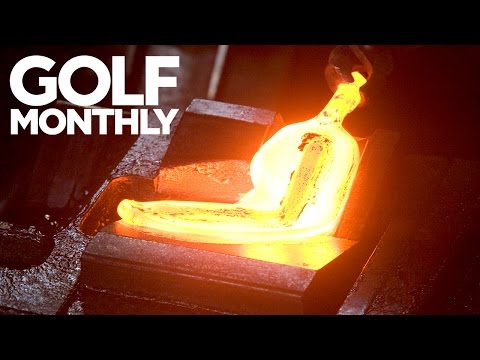
FREQUENTLY ASKED QUESTIONS (FAQ)
What is the difference between forged and cavity back irons.
One of the major difference of forged irons and the cavity back irons are how they are made. Forged irons are are poured into one piece and are usually thinner compare to the cavity back irons. Forged irons will give you a lot of consistency, and control over your distance shots. This is often the best pick irons for low handicappers golfers. Compared to the cavity back, forged irons make less vibrations upon contact with the ball.
Cavity back irons were designed with a hollow at the back. It is made by pouring hot metal into the mold. Doing so, it gives the club head shape. Most high handicapper and beginner players stick to cavity back iron. For cavity back irons, you can add extra components like perimeter weighting and so on because it can be easily poured into the pre-molded designs. The perimeter weighting of the cavity back helps to give golf irons maximum forgiveness.
What Are The Characteristics Of Great Forged Iron Sets?
The process of forging creates more weight in the center and gives the material a softer feel. The extra weight of the club will help you follow the correct path on your swing . Doing this can help players improve their game and hit a more wide range of shots. With the improvement in feel, you will be more at ease swinging your irons and hitting straighter shots.
Why Do The Pros Use Forged Irons?
A forged iron generally comes with a better center of gravity, which leads to a top performance sweet spot and extra ball distance. Pro players usually value the control, distance and forgiveness which forged irons offers. For pros, using a forged irons make it easier shape their shots.
What Are Golf Iron Shafts You Can Recommend For Forged Irons?
There are two shafts that players can choose for their forged iron: graphite or steel. Most of the player’s irons are available in both options. It is really up to you what to choose.
However, graphite and steel shafts differ from each other. The most significant difference between the two is weight. The graphite shaft is lighter than steel and more popular as well.
Beginner golfers usually stick with steel shafts because the added weight can assist you in getting a faster swing speed. This will all you to get a better launch angle and more distance.
Are the Best Forged Irons Scratch Resistant?
Forged iron is not scratch resistant. Players will notice hairline scratches on their iron over time of playing. These scratches will tend to accumulate over years and years of playing. However, this will not affect the irons’ playability. It is important to take care of your irons after playing as well as during play.
Golfers must also pay attention to how they arrange iron on the bag and make sure the iron heads are not clicking together much.
Still, it lies in your hands on how you will take good care of your forged iron to make it more durable and with fewer scratches. Scratches are inevitable, but you can lessen those by being mindful of your irons.
Do Forged Irons Wear Quicker?
The short answer is YES. The material for forged irons is softer, which is one of the major appeals of them. At the same time, this also makes them more susceptible to wear.
How Do You Clean Golf Irons?
The durability of the tools usually reflects on the owner. Aside from how often he plays and uses those tools , how he takes good care of it is still a big factor.
Golfers can clean their golf irons with warm water and mild soap. Mixed with warm water and soap in the basin or bucket and then dip your iron in the water for a few minutes. This will help soften the dirt or mud that stick on the iron.
Scrub the grooves with the brush to remove those hard to remove dirt. Rinse it with water and dry it off with a soft towel . Make sure to dry it thoroughly to avoid rust on your iron.
Aside from cleaning your golf irons, you may also be considering re-grooving your iron to keep your tools in shape. You can use the GrooveMaster Adjustable Golf Groove Sharpener !
In addition to cleaning, here are some additional tips on how players can take good care of their irons. Please pay attention to how you arrange your equipment in your bag. You can use covers; without them, they will mark quickly. And, please stay away from rocks wheres possible.
TESTING CRITERIA USED FOR EVALUATION
Forged irons are for golfers who are looking for more control and consistency of their shots. The iron looks like the same, but each of them has a different angle of the club face.
Longer irons deliver higher distance but a lower trajectory, while the short irons deliver higher trajectories that often result in a shorter distance.
One of the key criteria for choosing the best forged iron is the feel. As the ball speeds up when you hit it with your golf club, how your forged irons feel in your hands upon impact plays a great factor in your game improvement.
To be more confident, it should have a soft feel and lessen the vibration at impact as the sweet spot of your forged irons and the ball meet.
Accuracy on your iron set is very important, especially with your long irons. The long irons give you more distance with a low trajectory. Having the best forged irons with great sweet spots helps the ball speed and therefore, gain distance to get the ball near the hole in the green.
Forged irons have a more compact shape, so you want to have a consistent swing in order to take full advantage of them.
Forged irons will give you better control of your shots over a distance. Your longer irons are designed to create less back spin. Short and mid irons will adapt to your swing more to allow you to hit different kinds of shots.
Forged irons have more minimal offset compared to traditional cavity-back clubs, which make them easier to work with and control the golf ball.
Above, I’ve shown you the best forged irons on the market. Hopefully this list will help you to make a sound decision to choose the best forge irons for your game improvement. Among the best forged irons, the Callaway Apex Forged Iron set is our pick. This is a great forged iron especially if you’re transitioning from your cavity back to forged irons.
If you’ve bought forged irons recently and can comment on how they’ve helped your golf game, comment down below and let us know.
Denny Putsh
With over 25 years experience in the world of golf, I've dedicated a significant portion of my life to appreciating this sport. From my early days swinging a club at 12 years old to now, my passion has only grown. While I avidly follow the PGA Tour, what truly captivates me is the evolution of golf equipment and technology. Over the years, I've familiarized myself with the latest gadgets, training aids, and golf accessories that enhance the golfing experience. My mission is to share this knowledge and enthusiasm with fellow golf aficionados, ensuring they have access to the best insights and recommendations. Whether you're a beginner or a seasoned pro, I'm here to guide you through the dynamic world of golf innovation.
Last update on 2024-09-28 / Affiliate links / Images from Amazon Product Advertising API
Modern Golf Apparel
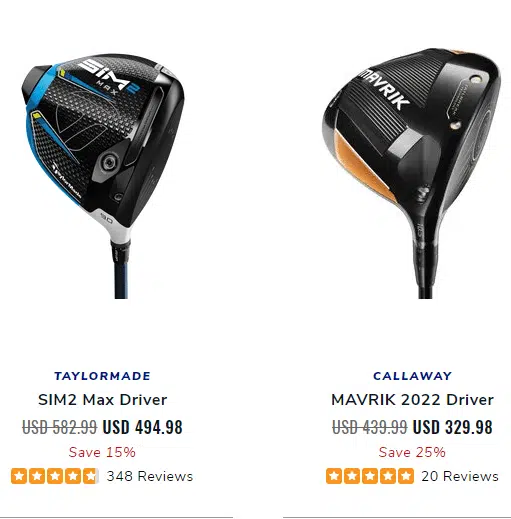
Save on TaylorMade, Callaway & more!
TaylorMade Tour Preferred irons review
Check out our review of three TaylorMade Tour Preferred iron ranges
- Sign up to Golf Monthly Newsletter Newsletter
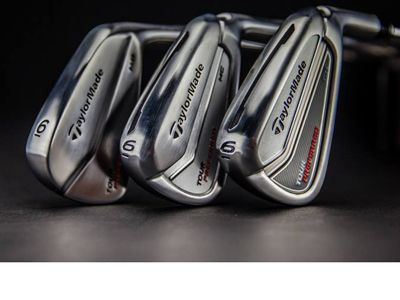
Why you can trust Golf Monthly Our expert reviewers spend hours testing and comparing products and services so you can choose the best for you. Find out more about how we test .
Golf Monthly Technical Editor Paul O'Hagan tests TaylorMade's Tour Preferred irons
Above, Golf Monthly Technical Editor Paul O'Hagan gives his TaylorMade Tour Preferred Irons review.
The clubs come in three models - CB, MB and MC - and were unveiled in January 2014.
The TaylorMade Tour Preferred MB irons are an authentic muscle-back blade forged from soft, 1025 carbon steel with a classic and compact shape, a thin top line and minimal offset.
The TaylorMade Tour Preferred MC irons featuree a muscle-cavity to boost the moment of inertia, creating an all-round iron product with feel, workability and stability.
The 3- 7-irons feature TaylorMade's Speed Pocket to promote increased ball speed in the lower portion of the clubface and more consistency across the entire face.
The head, top-line and sole-width of the Tour Preferred MC are all slighty larger than those on the Tour Preferred MB.
The TaylorMade Tour Preferred CB is a complete cavity-back which combines the shape of a player's iron with the look of a blade at set-up.
The Speed Pocket in the 3- 7-irons feature micro-slots for fast ball speeds across the whole face, as well as higher launch for more distance.
TaylorMade claims the Tour Preferred CB is one of the longest player's irons it has ever created.
The heads of the short irons are compact with minimal offset, and long and middle iron heads are a touch larger with progressive offset, offering more stability and easier launch.
The TaylorMade Tour Preferred CB, Tour Preferred MC and Tour Preferred MC come in 3-iron to pitching wedge with a satin nickel-chrome finish. All three models come with KBS Tour steel shafts and tour velvet grips.
If you decide to buy products from this range, take a look at our helpful TaylorMade discount codes .
Get the Golf Monthly Newsletter
Subscribe to the Golf Monthly newsletter to stay up to date with all the latest tour news, equipment news, reviews, head-to-heads and buyer’s guides from our team of experienced experts.
Nick Bonfield joined Golf Monthly in 2012 after graduating from Exeter University and earning an NCTJ-accredited journalism diploma from News Associates in Wimbledon. He is responsible for managing production of the magazine, sub-editing, writing, commissioning and coordinating all features across print and online. Most of his online work is opinion-based and typically centres around the Majors and significant events in the global golfing calendar. Nick has been an avid golf fan since the age of ten and became obsessed with the professional game after watching Mike Weir and Shaun Micheel win The Masters and PGA Championship respectively in 2003. In his time with Golf Monthly, he's interviewed the likes of Rory McIlroy, Justin Rose, Jose Maria Olazabal, Henrik Stenson, Padraig Harrington, Lee Westwood and Billy Horschel and has ghost-written columns for Westwood, Wayne Riley, Matthew Southgate, Chris Wood and Eddie Pepperell. Nick is a 12-handicap golfer and his favourite courses include Old Head, Sunningdale New, Penha Longha, Valderrama and Bearwood Lakes. If you have a feature pitch for Nick, please email [email protected] with 'Pitch' in the subject line. Nick is currently playing: Driver: TaylorMade M1 Fairway wood: TaylorMade RBZ Stage 2 Hybrid: Ping Crossover Irons (4-9): Nike Vapor Speed Wedges: Cleveland CBX Full Face, 56˚, Titleist Vokey SM4, 60˚ Putter: testing in progress! Ball: TaylorMade TP5x
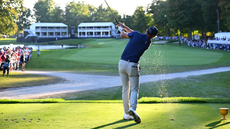
All 24 players have featured in the four pairs sessions and, with the Sunday singles to go, just one player remains undefeated going into the final round at the Presidents Cup
By Matt Cradock Published 29 September 24
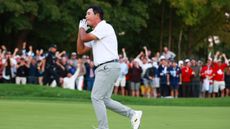
The International Team player produced arguably the moment of the match in the Saturday afternoon foursomes session at Royal Montreal
By Mike Hall Published 29 September 24
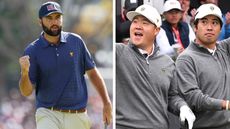
The foursomes and four-balls threw up a cluster of interesting pairings as 10 players featured in all four sessions of the 2024 Presidents Cup
By Mike Hall Published 28 September 24
- Contact Future's experts
- Terms and conditions
- Privacy policy
- Accessibility statement
- Cookies policy
- Advertise with us
Golf Monthly is part of Future plc, an international media group and leading digital publisher. Visit our corporate site . © Future Publishing Limited Quay House, The Ambury, Bath BA1 1UA. All rights reserved. England and Wales company registration number 2008885.
Most Forgiving Forged Irons 2024: Feel and forgiveness combined for the best of both worlds
Published: 24 May 2024 Last updated: 23 September 2024

Most Forgiving Forged Irons 2024
Forged fans needing a boost in the forgiveness department may want to take note of our tried and tested shortlist of the most forgiving forged irons.
- Most Forgiving Forged Irons
- How We Test
- Buying Guide
Forged irons used to be the sole domain of decent golfers. Many players, especially those who make it to single digits, see a beautiful set of forged irons as the absolute pinnacle of the game and the best irons money can buy.
Traditional forged irons tend to have classic blade profiles with little to no help in terms of launch, distance, or forgiveness, however, many modern forged irons manage to pack in design features that make them a little easier to hit. It’s still the case, though, that the most forgiving irons will be cast models, rather than forged.
Why? Forged irons generally have smaller, more compact heads, while the way they’re stamped into shape makes it difficult to build much game-improving tech into their design. But things have changed drastically in the last decade, spearheaded by PXG’s introduction of hollow forged irons in 2015.
There’s now forged irons aimed at everyone, from Rory McIlroy to 28 handicappers and above. Therefore the timing feels right to shortlist our test pro’s picks of the most forgiving forged irons from our data-informed 2024 iron reviews.
Best At A Glance:
Best for playability: Titleist T350 irons | View Offer
Best forged players’ iron: Ping Blueprint S iron | View Offer
Best for power with forgiveness: Srixon ZX4 MK II irons | View Offer
Best for mid-handicap distance iron: PXG 0311 XP GEN6 irons | View Offer
Best players’ iron for forgiveness: Titleist T150 irons | View Offer
How we tested the most forgiving forged irons
We asked the leading brands to send us their 2024 forged irons in our test Pro Neil Wain’s specs.
We created an indoor test lab at Keele Golf Centre to ensure a controlled environment, which meant we could use premium Titleist Pro V1x golf balls and a Foresight GC Quad launch monitor to create the most reliable data possible. We rejected major misses but recorded how shots launched, span, peaked out, and how far they flew in which direction.
See more about how TG tests golf clubs and other equipment .

Most Forgiving Forged Irons 2024:
Titleist t350 irons.
The most forgiving and playable iron set offered by Titleist.
Best for playability

Most Forgiving Forged Irons 2024: Buying Guide
If you are considering upgrading your bag with a new set of forgiveness-boosting forged irons then here are some key considerations worth keeping in mind:
While this guide has proved today’s forged offerings are not exclusively for high-level players, some models will naturally suit consistent ball strikers and high-speed players more than others. We recommend being honest with yourself when it comes to assessing your ball-striking ability so you can best identify how much added support you require before committing to a significant purchase such as a set of irons.
Forged irons are typically weighted toward workability and control as opposed to distance. While this guide highlights some excellent examples of forged irons that combine lots of competing interests, it’s worth remembering that you will likely have to make a compromise somewhere. And if distance is something high on your requirements, ensure you go for a model that packs in a bit more distance-boosting technology such as the best players’ distance irons .
The feel of a golf shot is integral, allowing you to learn from the interaction experienced between the ball and the club at impact. Feel is determined by the vibrations traveling up the shaft of the club, as well as the sound of the impact. Every iron will have its own unique ‘feel’, and it’s therefore imperative to make sure you select a model that encourages this feedback to best control ball flights and ultimately help you to shoot lower scores. A forged iron, even with boosted technology, should still provide above-average levels of feel.
Workability
The ability to draw and fade a ball into awkward pins is a key skill for better players, and forged irons are designed to enhance this shot-shaping ability. Consider your natural ball flight and which shot shape you struggle with most before heading to the range with a few different options to see which model provides you with the workability you desire.
Custom fitting
Often overlooked, but dialing in your optimal set-up through a custom fitting session will likely be of more benefit than the slight performance edge you hope to achieve by selecting one set of irons over another. If you’re not sure where to start, we suggest nipping down to your club Pro, or nearest golf retailer to explore the shaft, flex, lie angle, and a whole host of other variables that will help you extract the most value from your chosen model.
As with many things in the golf world, prices for forged irons typically come at a premium. Value for money is subjective and therefore you should spend however much you feel comfortable with, be one of the powerhouse brands, or one with a more competitive price point.

Most Forgiving Forged Irons 2024: FAQs
What defines a forged golf iron.
Iron heads are produced in one of two ways: by being cast, or being forged.
Forged: A forged head involves taking a single piece of metal and hammering it into the desired shape. It typically involves softer materials and a more labor-intensive process, which can push up prices. Typically, forged clubs were seen as offering the ultimate in feel, although manufacturers have become increasingly adept at making cast clubs feel almost as good as their forged counterparts.
Cast: Casting is a more commonly used process and involves pouring molten metal into a mold to harden into the required shape as it sets. This process allows more versatility in design and is therefore used in the majority of non-bladed irons.
Who are forged irons for?
Not so long ago forged irons were the realm of decent players only. There’s now a model out there for everyone, regardless of your ability or handicap. Manufacturers are bringing the same high-spec equipment to high-handicappers as they are their tour staff. It’s the result we really wanted from this test. Remember, mixed and combo sets are a great idea, offering the best of both worlds with more forgiving long and mid irons, and more compact scoring clubs.
What golf irons are the most forgiving?
The most forgiving golf irons will produce the lowest dispersion numbers in addition to protecting carry distance on off-center strikes. These golf clubs will typically have the highest resistance to twisting on impact, otherwise known as Moment of Inertia (MOI). Today’s Golfer has found the Callaway Paradym Ai-Smoke HL , TaylorMade Stealth HD , and Cobra Air X , to be amongst the most forgiving models in recent years.
What irons do Tiger Woods and Rory McIlroy use?
Both Tiger and Rory game TaylorMade irons. Tiger uses TaylorMade P7TW irons (4-PW) with True Temper Dynamic Golf Tour Issue X100 shafts, whereas Rory opts for the brands’ P760 4-iron and P730 Rors Proto irons (5-9) with Project X Rifle 7.0 shafts. Bear in mind, however, that these are two of the best ball strikers of all time, and you should consider which TaylorMade iron is best for you before splashing the cash on your idol’s exact model.
SUBSCRIBE TO TODAY’S GOLFER: Print and Digital access, discounts and rewards!
About the author

Simon Daddow – Today’s Golfer Equipment Editor
Having tested and played more than 10,000 clubs in his life, what Simon doesn’t know about golf clubs isn’t worth knowing.
He spent a large part of his career as a golf club maker and product development manager, and has worked in the golf industry for more than 30 years. He joined EMAP Active (now Bauer Media) as Equipment Editor in 2006 and has worked for both Today’s Golfer and Golf World.
You can contact Simon via email and follow him on Twitter for loads more golf equipment insight.
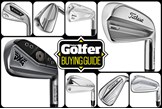

IMAGES
VIDEO
COMMENTS
The JPX 923 is a true Tour-inspired cavity-back. Retail price is $187.50 per iron. Available February 2023. We covered the Mizuno JPX 923 Hot Metal lineup here. The forged half of the lineup (technically, it's the other 40 percent)—the JPX 923 Forged and JPX 923 Tour—won't launch until February. Bummer.
Cast Irons Vs Forged Irons History. It was not until the 1960s that the casting process was introduced by Ping. Before that, irons were crafted by forging a single piece of metal at all times. ... Tour V.T sole promotes consistent ball speeds for a consistent launch; Pros. Soft feel on shots off the center of the face; The set includes a 3-iron ...
Cast irons tend to be made from a stainless steel alloy - the steel goes into a furnace, melts and is then poured into a ceramic mould. When everything has cooled down, the mould is broken, leaving the club inside. VIDEO: Mizuno's Chris Voshell explains the key differences between cast and forged irons. Cast irons are more commonly associated ...
When it comes to ball speed and distance, the JPX923 Tour is a small step down from the Forged and Hot Metal models. This is a product of both the lofts and the construction, and it's also a feature, not a bug. The player who is gaming these irons knows there are longer clubs, but they are opting for control and consistency.
Review of The 5 Best Forged Irons. If you consistently and confidently strike the ball well, you might want to consider playing with forged irons. We look at 5 of the best options to consider. 1. Most Forgiving Forged Irons - Wilson Staff D9. Wilson D9 Forged Iron Set LH 5-PW, GW Steel Reg View on Amazon.
Mizuno JPX 923 Tour does not produce as much distance as most other player's irons. It finished 12th for distance in our testing. According to our data, JPX 923 Tour is the best player's iron for accuracy. Accuracy is a direct reflection of an iron's Strokes Gained score. JPX 923 Tour is the best player's iron for forgiveness.
As such, the question of forged or cast in irons is really not something most players need to worry about. — Marty Jertson, Director of Product Development/Ping Golf The new Ping i500 irons ...
With a compact, forged iron, expectations for feel are going to be high. They're higher still with the name Mizuno. While the feel of the JPX921 Tour isn't life-altering, it does meet my expectations. Centered shots are soft with a small, crisp impact sound. When you move away from the sweet spot, the feel becomes dull and less crisp.
*Filmed in June 2022Ian visits Mizuno's Chris Voshall to test the new JPX 923 Forged and Tour irons.0:00 // Intro & Tech5:28 // Testing12:34 // ConclusionBOO...
JPX919 Tour. Comparing distances with the other 919s is not a fair fight for the Tour. The Tour 7-iron loft is 34° 32° in the Forged, and 30° in the Hot Metal. So if when you're comparing the Tour's distance to the Hot Metal, you are essentially comparing a 7-iron to a 6-iron (that just happens to be stamped with a "7").
Sound & Feel. More than any iron in recent memory, the Mizuno JPX 919 Tour is vocal about how well you struck the ball. Hitting the center of the face produces a crisp feel. When you move away from the sweet spot, the feel gets hard and the sound is loud. There is absolutely no question about the quality of contact.
With the JPX 919 Tour, Mizuno forged each iron out of a single billet of 1025E "Pure Select mild carbon steel.". The Mizuno JPX 919 Tour brought back that signature feeling of an expertly-forged Mizuno iron. Good shots are rewarded with a responsive, yet soft and pure feel in your hands. If you compare the JPX 919 Tour and MP-18 MB, the JPX ...
Callaway Apex CB Custom Irons. $215. The new Apex CB '24 Irons are designed for the most discerning tour pros and elite ball-strikers. This tour-cavity back is designed with an all-new forged ...
New for 2020 Mizuno golf are 4 sets of irons. JPX 921 Tour, JPX921 Forged, JPX921 Hot Metal and the JPX Hot Metal Pro. It has been 10 years since Mizuno initially launched the JPX iron series with the JPX 800. Since that time, iron after iron, engineers have introduced innovations that have allowed the company […]
Throw into the mix a third-best ball speed performance in the players' iron category in 2024. A fourth-best carry distance, plus a 23.2% smaller carry distance drop-off and 67.1% smaller shot area than our test averages and you can see in the right hands the ZX7 is an absolute beast of a tour-level forged iron.
In this video, the three GolfBarons (Shooter, Kippa and Philbert) check out the Mizuno JPX 921 iron range at The National Golf Club, putting the Tour and For...
Callaway Apex MB irons. $185/club. Callaway Apex MB Irons are built for the best players in the game. It's a beautiful classic blade shape with high-performance grooves, remarkable feel, and a ...
Picking up the bridge theme again, the Mizuno JPX923 Forged irons have a loft structure that falls between the JPX923 Tour and JPX923 Hot Metal Pro. They are 2-3 degrees stronger than the Tour and 1.5-2 degrees weaker than the HMP. This results in launch angles that are strong, more akin to the Hot Metal irons, but spin that's closer to the Tour.
Mizuno Pro 223 (Best Manufacturing Process) Mizuno JPX 921 Forged Iron Set (Previous Generation Pick) Wilson Staff D9 Forged Iron Set (Best for Beginners) TaylorMade P790 Iron Set (Best for Low Handicappers) For each of the top forged irons, I'll go over a bunch of things below: Key features you need to check out.
The TaylorMade Tour Preferred MB irons are an authentic muscle-back blade forged from soft, 1025 carbon steel with a classic and compact shape, a thin top line and minimal offset. The TaylorMade Tour Preferred MC irons featuree a muscle-cavity to boost the moment of inertia, creating an all-round iron product with feel, workability and stability.
Forged from premium S20C steel by Endo, the Tour VS is made for feel and control for the lower handicap player. The Tour VS is a muscular more boxy looking iron with a thin undercut/pocket cavity. The cavity helps increase forgiveness by reducing distance and lost accuracy on off center strikes. Typically, pocket cavities can be associated with ...
1. What does "cast" and "forged" actually mean? Boyd says: "The forging process is taking a solid billet of steel, and then through various steps, using heat, pressure, and tooling dyes ...
Any decision between the S and i230 is likely to come down to how much premium you put on playing forged irons. Out on tour, this is huge, hence why the Blueprint S is seeing such success in the hands of the best players in the world. For decent club golfers price is also likely to be a factor as a 7-piece steel shafted set will set you back £ ...
I cannot stand the feeling of hollow headed irons. Dynapower forged feels like a forged players iron. 1 Quote; Ping G30 LS 9* tour 65X Ping Rapture D.I. 18 Ping G25 3-PW CFS X Ping Glide (50,54,58) CFS Wedge ... Please put any questions or comments here General Albums 2024 Tour Championship ...